Sarah Chorn's Blog, page 16
October 28, 2020
SALE | GRIMTOBERFEST 2020
It’s that time of year again!
A bunch of us authors have decided to put our books on sale until October 30. All books are marked down to $.99/.99p. Here’s a list of what’s on sale, along with the back cover copy, and a buy link.
As a personal note, yes, I’ve written one of the books, but I’ve read most of the others and highly, highly recommend all of them. Also, buying books, even when they are on sale, is a great way to give authors a pandemic-approved hug, and we all need pandemic-approved hugs.
So… check out the sale!

From the moment the first settler dug a well and struck a lode of shine, the world changed. Now, everything revolves around that magical oil.
What began as a simple scouting expedition becomes a life-changing ordeal for Arlen Esco. The son of a powerful mogul, Arlen is kidnapped and forced to confront uncomfortable truths his father has kept hidden. In his hands lies a decision that will determine the fate of everyone he loves—and impact the lives of every person in Shine Territory.
The daughter of an infamous saboteur and outlaw, Cassandra has her own dangerous secrets to protect. When the lives of those she loves are threatened, she realizes that she is uniquely placed to change the balance of power in Shine Territory once and for all.
Secrets breed more secrets. Somehow, Arlen and Cassandra must find their own truths in the middle of a garden of lies.
BUY THE BOOK

Wizards are forged, not born.
Victoria of Ourtown lived through a nightmare to become the ruthless soldier known as Vic the Blade. Once she wished to explore the world settled by her spacefaring ancestors; now she thinks only of revenge.
Prince Ashel’s carefree days are filled with music, revels, and dreams of a life with Vic. Those hopes die when the thrust of an assassin’s knife drives him to war.
The target of Vic’s and Ashel’s wrath is Lornk Korng, a tyrant whose schemes stretch across a continent and a lifetime.
A mysterious alien race holds the key to a legendary—and lethal—power. Whoever possesses this power will hold the world in their hands. Will they save it, or doom it?
A gripping tale of empowerment and revenge plays out against a breathtaking backdrop of dark fantasy and science fiction.
Finalist, 2017 Next Generation Indie Book Awards
Honorable Mention, 2017 Reader’s Favorite Book Awards
BUY THE BOOK

When a tyrant wears the crown, a hero must become an Usurper…
The Fates weave a tapestry of life and death for young Gathelaus the Sellsword. Now an unexpected opportunity presents itself for the famed mercenary, he has but to claim the blood red crown…
But once you wear the crown, how long can you hold it until that power is turned against you? Follow Gathelaus on a journey through a life of magic, action and intrigue; battling gods and monsters across a mystic realm …
The Usurper is an action-packed heroic adventure in the vein of classic pulp fiction and heroic fantasy. If you like Conan the Barbarian, The Witcher and Logen Ninefingers along with vengeful sorcery, savage duels, larger-than-life characters, and witty humor, then you’ll love James Alderdice’s barbaric tale.
BUY THE BOOK

On the march, around the campfire, and in the taverns, they tell incredible stories about Tarmun Vykers – how he’s never been cut in battle, how he once defeated hundreds of men by himself, how he exterminated an entire people over an insult. These stories make Vykers seem like a god; he is a man, an arrogant, ruthless and bloodthirsty man. And he may be the only thing standing between the human race and utter annihilation at the hands of the mad sorcerer whose name is also his only goal: the End of All Things. Against this backdrop, smaller, lesser folks struggle to fulfill their own destinies, folks like Long Pete, the former gigolo and jack-of-all trades, and Spirk Nessno, the enigmatic, over enthusiastic simpleton. Struggling, too, is the Mender, Aoife, burdened with a secret so dark she is driven to do the unimaginable. Can Tarmun Vykers save them all, or will he simply hasten their demise?
Are you a fan of Grimdark, Joe Abercrombie, Steven Erikson, Glen Cook or George R. R. Martin? You will love this book!
BUY THE BOOK

Includes all five books of The Rhenwars Saga!
There Is No Mercy for the Merciless.
The Well of Tears was created to harness the power of the Netherworld to prevent a magical apocalypse. Now Darien Lauchlin is the last surviving mage capable of reversing the destruction the Well unleashed. Darien will be forced to sacrifice everything of himself and everyone around him—all to preserve a nation of people who despise him.
The Rhenwars Saga is a sprawling epic set in a morally gray world where there is no clear distinction between hero and villain.
Download this Special Edition Box Set to experience epic battles, flawed heroes, and a brutal struggle where the triumph of good over evil is never guaranteed.
If you enjoy the dark, sprawling world of Steven Erikson, the awe-inspiring magic of The Wheel of Time, and the compelling antiheroes of C.S. Friedman, then you’ll love The Rhenwars Saga.
BUY THE BOOK

‘Exile’ is a fast-moving tightly-plotted fantasy adventure story with a strong thread of romance
Aron of Darien, raised in exile after his homeland is conquered by a treacherous warlord, makes his way in the world on the strength of his wits and skill with a sword. Both are sorely tested when he is impressed into the service of the Earl of Nandor to rescue his heir from captivity in the fortress of Sarazan. The rescue goes awry. Aron and his companions are betrayed and must flee for their lives. Pursued by steel and magic, they find new friends and old enemies on the road that leads, after many turns, to the city of the High King. There Aron must face his father’s murderer before risking everything in a fight to the death with the deadliest swordsman in the kingdom.
BUY THE BOOK

In the fighting pits of Parathet, life is cheap – for blood is but a commodity and champions are utterly expendable.
Beneath the shadows of opulent towers and golden domes, the young slave, Harlin, carves a terrible name for himself from the flesh of men. Born of a warrior race and forced into a life of unending violence, many say no man alive can slay him. But in Parathet the price of reputation is weighted in gold and silver, and when Harlin’s owner is challenged to put that reputation to its greatest test, it may well be his last.
For Harlin must face the man known as Ethiki the Bastard. A slave-warrior of more dread renown than even himself, Ethiki’s kills are beyond number, his strength unmatched and methods sickening.
But in Harlin the fires of the past burn and sear without end, the memories of his childhood sharp as the torturer’s blade, his hatred birthing a relentless, diseased thirst for vengeance. Faced with finality, with the prospect of it being unfulfilled, the blood-crowds of Parathet may yet learn that the scars of the sand run deeper than mere flesh.
BUY THE BOOK

Ruka, called a demon at birth, is a genius. Born malformed and ugly into the snow-covered wasteland of the Ascom, he was spared from death by his mother’s love. Now he is an outcast, consumed with hate for those who’ve wronged him. But to take his vengeance, he must first survive. Across a vast sea in the white-sand island paradise of Sri Kon, Kale is fourth and youngest son of the Sorcerer King. And at sixteen, Kale is a disappointment. As the first prince ever forced to serve with low-born marines, Kale must prove himself and become a man, or else lose all chance of a worthy future, and any hope to win the love of his life. Though they do not know it, both boys are on the cusp of discovery. Their worlds and lives are destined for greatness, or ruin.
But in a changing world where ash meets paradise, only one man can be king… The first installment of an epic, low- fantasy trilogy. Kings of Paradise is a dark, bloody, coming-of-age story shaped by culture, politics, and magic.
BUY THE BOOK

Epic Fantasy filled to the brim with Grimdark Reality
If one looks too long into the abyss, the abyss looks back. Drangar Ralgon has been avoiding the abyss’s gaze for far too long and now he turns to face it.
For a hundred years the young kingdom of Danastaer has thrived in peace. Now their northern neighbor, mighty Chanastardh, has begun a cunning invasion.
Thrust into events far beyond his control, the mercenary Drangar Ralgon flees his solitary life as a shepherd to evade the coming war and take responsibility for his crimes.
In Dunthiochagh, Danastaer’s oldest city, the holy warrior Kildanor uncovers the enemy’s plans for invasion.
As ancient forces reach forth to shape the world once more, the sorceress Ealisaid wakes from a century of hibernation only to realize the Dunthiochagh she knew is no more. Magic, believed long gone, returns, and with it comes an elven wizard sent to recover a dangerous secret.
BUY THE BOOK

No one escapes the Pit.
At just fifteen Eskara Helsene fought in the greatest war mankind has ever known. Fought and lost. There is only one place her enemies would send a Sourcerer as powerful as her, the Pit, a prison sunk so deep into the earth the sun is a distant memory. Now she finds herself stripped of her magic; a young girl surrounded by thieves, murderers, and worse. In order to survive she will need to find new allies, play the inmates against each other, and find a way out. Her enemies will soon find Eskara is not so easily broken.
(FREE TODAY, OCTOBER 28 ONLY)
BUY THE BOOK

The Drine war machine needs to be constantly fed and has turned its sights on Tienne. Warlord Rextur devoted his life to planning this invasion, so how did he lose the element of surprise? And who is this emerging rival Peter Redfist? He can’t be much of a problem. The god of destruction has long favored Rextur. His faith is strong and his legions mighty. Who could withstand their onslaught?
BUY THE BOOK
October 27, 2020
Review | No Good Men Among the Living: America, the Taliban, and the War through Afghan Eyes – Anand Gopal

About the Book
Told through the lives of three Afghans, the stunning tale of how the United States had triumph in sight in Afghanistan–and then brought the Taliban back from the dead
In a breathtaking chronicle, acclaimed journalist Anand Gopal traces in vivid detail the lives of three Afghans caught in America’s war on terror. He follows a Taliban commander, who rises from scrawny teenager to leading insurgent; a US-backed warlord, who uses the American military to gain personal wealth and power; and a village housewife trapped between the two sides, who discovers the devastating cost of neutrality.
Through their dramatic stories, Gopal shows that the Afghan war, so often regarded as a hopeless quagmire, could in fact have gone very differently. Top Taliban leaders actually tried to surrender within months of the US invasion, renouncing all political activity and submitting to the new government. Effectively, the Taliban ceased to exist–yet the Americans were unwilling to accept such a turnaround. Instead, driven by false intelligence from their allies and an unyielding mandate to fight terrorism, American forces continued to press the conflict, resurrecting the insurgency that persists to this day.
With its intimate accounts of life in war-torn Afghanistan, Gopal’s thoroughly original reporting lays bare the workings of America’s longest war and the truth behind its prolonged agony. A heartbreaking story of mistakes and misdeeds, No Good Men Among the Living challenges our usual perceptions of the Afghan conflict, its victims, and its supposed winners.
319 pages (kindle)
Published on April 29, 2014
Buy the book
When I go on current event nonfiction binges, I tend to look for books that are written from the other point of view. I know my own well enough. I want to see whatever I’m reading about through the eyes of those who lived it. So, when I came across this book, I knew I’d found something really special. A book that would not only challenge my perspective of what happened, but also of the people who were the most impacted by the things that happened. The people who so often do not have a voice.
I will say, before I get too far into this review, that this book has the potential to offend people. It will drastically reinterpret the war in Afghanistan, and it unflinchingly paints some of the things America has done over there in a questionable light. If you are a person who has your mind made up about all things War on Terror related, then I really think you should skip over this book. Pass it on by. You won’t like it, and it will just make you mad.
On the other hand, if you’re a person who finds this sort of thing interesting, then you’ll likely want to read this book, but keep an open mind. You won’t agree with everything said here (I didn’t), but it is worth reading because knowing how other people experience and understand things is an important part of being a human.
Anand Gopal is a United States journalist. He was sent to Afghanistan to report on the war, and somehow managed to travel quite a swath of the country in the process. In this book, he tells the stories of three individuals who got sucked into the fray. There is a teenager who is unavoidably pulled into the conflict, a warlord who ends up with US-support, and a housewife who is, quite literally, trapped.
“The first time a woman enters her husband’s house,” Heela told me about life in the countryside, “she wears white”—her wedding dress—“and the first time she leaves, she wears white”—the color of the Muslim funeral shroud.
Intermixed into this are stories from a few others, vignettes that tell stories about things that happened. A baker who gets arrested routinely by US soldiers; a freed warlord prisoner; a man wrongly identified and arrested for crimes he never committed, and more.
The power of this book comes from the stories being told, but Gopal recognizes the complexity of the region and the conflicts he is writing about, and he does an absolutely marvelous job at setting up the backdrop, the story that supports everything that is coming next. Starting in USSR days, and then sliding through the chaotic years that follow until Taliban and then US intervention. Gopal boils it all down and makes this region’s numerous dramas easy to understand and incredibly digestible.
To become a mullah, you studied for up to twelve years in a madrassa, where you learned the intricacies of Islamic law, along with history, philosophy, and logic. In Pashto, such students were called taliban. Because a mullah was guaranteed employment for life, this was a course of study particularly well suited to those from the humblest backgrounds. It was in greater Kandahar, where tribal structures were the weakest, that the taliban were most fully integrated into social life.
There is a whole lot I didn’t know, for example, I did not know that the Soviet Union and the US used Afghanistan as a sort of proxy Cold War battle ground, where the USSR dug its heels in in Kabul, while the CIA funded religious militants known as mujahedeen, out in the surrounding countryside. I didn’t know that when the USSR left, the US followed, creating a power vacuum which resulted in a catastrophic civil war and unbelievable unrest between tribal groups. I didn’t know that this was the setting wherein the Taliban were called down from their mountainous homes in an effort to calm things down, and that this hotbed of blood and death and strife was where Bin Laden, with lots of money and guns marched in from Saudi Arabia and set up camp. I didn’t understand the cultural context for any of this until I read the book. Not just the war-torn region itself, but also the role of the Taliban, how it was created, why it was a thing in the first place, or how they got the power they eventually attained.
Outside the capital, mujahedeen rule veered into the tyrannical. A commander in the northwestern province of Faryab decreed it permissible to rape any unmarried girl over the age of twelve. In the western city of Herat, authorities curtailed musical performances, outlawing love songs and “dancing music.” It was the mujahedeen—not the Taliban, who did not yet exist as a formal group—who first brought these strictures into politics. Many of these same commanders would be returned to power by the United States to run the country after 2001.
Gopal goes into a lot of detail, but never manages to get bogged down in it. From the setup to this war on terror, to how the Taliban formed and what they are, and so much more. In this regard, Heela, the housewife, is probably the perspective that I found the most interesting and engaging.
Heela was raised in Kabul during Soviet times, when she did not have to wear a headscarf, and she was allowed to go to school. In fact, Heela had an advanced college education, a rather enlightened husband regarding women’s rights, and a promising future ahead of her. Then the USSR fell, civil war broke out, and in an effort to save themselves, she, her husband, and her son, fled to his remote roadless, electricity-less village seven hours from the nearest town, where she had to don the garb we all associate with women in Afghanistan, stay behind the walls of her house, and never be heard by any man but her husband. Pre-Taliban, the mujahedeen rule was tyrannical, especially toward women. I was rather surprised to learn that most of what I associate mentally with women in Afghanistan was actually started with the mujahedeen, not the Taliban (though, let’s be honest, they didn’t really help matters at all). Her change from the open atmosphere of Kabul to the oppressive countryside must have been like entering another planet.
Women are not to leave their homes at all, unless absolutely necessary, in which case they are to cover themselves completely; are not to wear attractive clothing and decorative accessories; are not to wear perfume or jewelry that makes any noise; are not to walk gracefully or with pride in the middle of the sidewalk; are not to talk to strangers; are not to speak loudly or laugh in public; and they must always ask their husbands’ permission to leave the home.
Her story was incredibly gripping, but there were a lot of other stories and details woven in that were incredibly illuminating as well. I also found the story of an ex-Taliban officer who fled when America invaded, defecting the cause he’d believed in along with so many others, quite interesting. Gopal managed to interview warlords, as well as the everyman. He showed not just how the war impacted their lives, but their unflinching perspective of what happened, as people who lived there, on the ground, and had to traverse this reality every day of their lives. It was brilliantly well done, if disturbing and extremely depressing. There were a lot of mistakes made on all sides, and a lot of lives lost.
Gopal set out to tell the story of America’s war on terror from an Afghan perspective, and he managed it with flying colors. Not only do I have a better understanding of what happened on the ground (including how warlord feuds became US military-backed conflicts), but I have a much better understanding of the culture and the strife of this region, and what laid the groundwork for the war that is still being waged to this day, and the terrible human cost on both the American and Afghan sides.
This book is not anti-American. Rather, Gopal is stepping back and giving us a window into the lives of those impacted by our decisions and our policies. You can agree or disagree with what is presented in this book, but I do believe it is important for us to try to understand not just the policies this country enacts, but the lives it impacts as well, and in that respect, there are not enough books like this in the world.
In times of strife, taliban have usually mobilized in defense of tradition. British documents from as early as 1901 decry taliban opposition to colonialism in present-day Pakistan. However, as with so much else, it was the Soviet invasion and the US response that sent the transformative shock. In the 1980s, as guns and money coursed through the ranks of the Kandahar mujahedeen, squabbling over resources grew so frequent that many increasingly turned to religious law to settle their disputes.
No Good Men Among the Living haunted me. I could not stop thinking about it. I couldn’t stop reading it. I just couldn’t stop. I have so many highlights and notes from this book, it’s ridiculous. I have read a lot of books about Afghanistan. The region fascinates me, probably because we really know so little about it, and the area is, from my Western perspective, so incredibly foreign to me. I don’t understand a whole lot about it, and I doubt I ever will. Afghanistan has an absolutely abysmal record regarding women’s rights, and isn’t that great about people in general, either. I’m horrified and fascinated. Gopal did an amazing job of not just presenting the nuances of an incredibly complex conflict, but also painting a rich cultural backdrop with which all of this is presented, giving context and layers to things that had seemed so obviously one-note to me before.
No Good Men Among the Living is one of the best books I’ve read in a long, long time, and I doubt I will stop thinking about it anytime soon. I cannot recommend this book highly enough. I consider it mandatory reading for anyone with even the slightest interest in Middle East affairs. It is uncomfortable. It is painful. It is depressing.
It is so incredibly important.
“Winning a war such as this was not about planting flags or defending territory or building fancy villas. It was not about titles or promotions or offices. It was not about democracy or jihad, freedom or honor. It was about resisting the categories chosen for you; about stubbornness in the face of grand designs and schemas. About doing what you had to do, whether they called you a terrorist or an infidel. To win a war like this was to master the ephemeral, to plan a future while knowing that it could all be over in an instant. To comfort your children when the air outside throbs in the middle of the night, to squeeze your spouse’s hand tight when your taxi hits a pothole on an open highway, to go to school or the fields or a wedding and return to tell about it. To survive.”
5/5 stars
October 26, 2020
Indie Author Interview | Nicola M. Cameron
This is part of a new series of interviews featuring indie authors. These interviews will drop once or twice a week. If you’d like to be part of this series, please contact me at Sarah (at) bookwormblues (dot) net. Please support the authors by clicking on the affiliate links in the interview, spread the word, and, of course, buy their books.
We’re all in this together, you know?
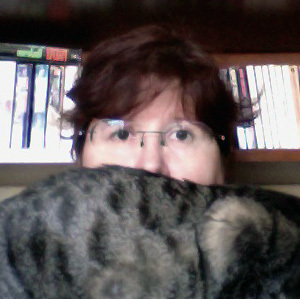
About the Author
Nicola Cameron is a married woman of a certain age who really enjoys writing about science fiction, fantasy, and romance. When not writing about those things, she likes to make Stuff . And she may be rather fond of absinthe.
. And she may be rather fond of absinthe.
While possessing a healthy interest in sex and romance since puberty, it wasn’t until 2012 that she decided to write about them. The skills picked up during her SF writing career transferred quite nicely to speculative romance. Her To Be Written work queue currently stands at around nineteen books, and her mojito-sodden Muse swans in from Bali every so often to add to the list, cackling to herself all the while.
The bulk of Nicola’s titles are SF (Degree of Resistance, Two to Tango), fantasy (Empress of Storms, Palace of Scoundrels, Lady of Thorns, Red Robin and the Huntsman, A Boon By Moonlight) and paranormal romance (Shifter Woods: Howl, Shifter Woods: Roar, Shifter Woods: Snarl, Trickster), as well as one historical romance, Behind the Iron Cross. As of 2018 she also started writing contemporary romances such as To My Muse and will be continuing this under the name Natasha M. Stark.
As for writing in general, Nicola plans to keep writing until she drops dead over her keyboard or makes enough money to buy a private island and hire Rory McCann as her personal trainer/masseur, whichever comes first. Because it’s important to have goals.
Links
Website
Email
Facebook
Twitter
Amazon
Goodreads
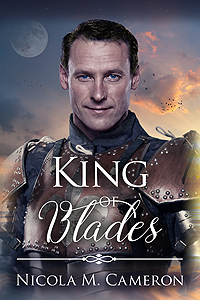
First things first, tell me about your books.
King of Blades is the fourth book in my Two Thrones series (started by that written-on-a-bet Empress of Storms). It’s autumn in the beautiful island kingdom of Hellas as King Matthias of Ypres and Queen Danaë reunite for their first wedding anniversary and the upcoming birth of their twins. But even as the Hellene capital celebrates with a week’s worth of spectacular athletic games, a pair of unexpected visits complicate the royal couple’s romantic interlude, and a concerned Danaë begins to wonder if her king is growing tired of her.
Meanwhile, Danaë’s brother Darius reunites with his lover Lars, only to learn that the handsome Ypresian officer has life-changing news of his own. When a series of strange accidents begin to plague the palace, Darius and Lars must join forces with the master Aeris mage Petyr Epilonious to investigate them—before the next one kills Darius.
What makes you and your books unique? Shine for me, you diamond.
I love writing truly entertaining stories with a ton of banter, capable heroines, supportive heroes who will fight tooth and nail for the people they love but step back if that person is the expert who’s needed at the moment (there is a reason why I adore Brendan Frasier in The Mummy), passionate sex scenes that also advance the plot, and the occasional real world issue that hopefully makes people think while they’re being entertained. If someone feels like reading one of my books was time well spent, my job here is done.
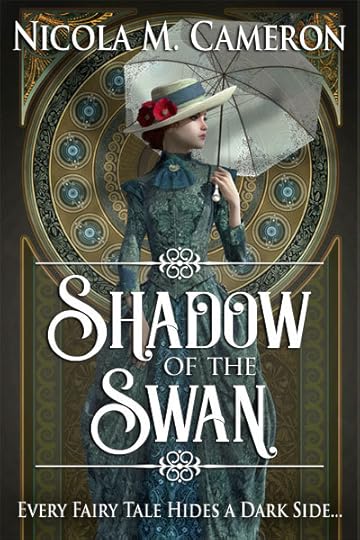
What are you working on now/any future projects you want to talk about?
The rest of this year is going to be a dead run for me as I publish King of Blades on 10/27/2020, Cross Current (Olympic Cove Book 4) on 11/24/2020, and Uncertainty Principle (Pacifica Rising Book 2) on 12/22/2020. But that wipes out my backlog, and I can start fresh in 2021 with the sequel to Shadow of the Swan, The Crimson and the Black (yes, another series. I am a masochist, clearly).
Sarah’s note: I’m tired just reading all that.
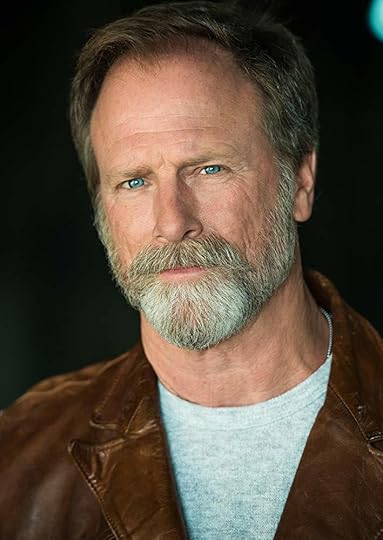
Let’s celebrate. What’s one of the best things that’s happened to you as an author? Don’t be shy.
I’ve gotten the opportunity to chat a number of times over Twitter with Louis Herthum, whose performance in Westworld inspired my dystopian SF romance Degree of Resistance. He’s a kind and lovely guy who’s been very tolerant with this wacky romance writer from Plano.
Let’s talk about CRAFT
What about self-publishing appeals to you? Why did you choose this particular path to publication?
I actually started self-publishing on a bet, of all things. Back in 2015 there was a small kerfluffle on social media where a romance writer with some really strange views about the business was conducting a public argument with other writers. In the end, she essentially dared people to write an 80,000 word novel, get it edited, get a professional cover for it, and release it in six months.
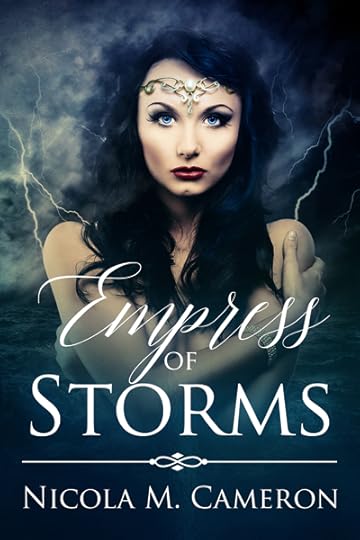
To this day, I don’t know why I said, “I’ll do it in six weeks.” But I did. I pulled out a 3K fragment of a story that dated to when LOTR: The Two Towers had just come out (what can I say, I thought Bernard Hill was smokin’ as Theoden) and spent the next four weeks pulling together assorted fragments of old D&D campaigns, an elemental magical system, and my favorite kind of love story, then two more weeks learning how to format ebooks and hiring the amazing Jay Aheer to do the cover while the book was being edited. That was Empress of Storms, and not only was it my first self-pubbed work, it’s also my only work to date to earn five figures.
Today, I self-pub because it gives me the freedom to write in any subgenre I feel like, and promote a book the way I think it needs to be promoted. I also love having complete control over my edits and covers, and I even enjoy the marketing aspect of the business.
Tell me about something odd you do when you write? Something about your particular process that is distinctly YOU.
I use Scrivener, which allows you to split your screen and display two documents at the same time, and I have to have pictures of my characters (usually actors that I mentally cast as the characters) next to the book document. This has gotten me a couple of strange looks back in the day when I could still write at Starbucks.
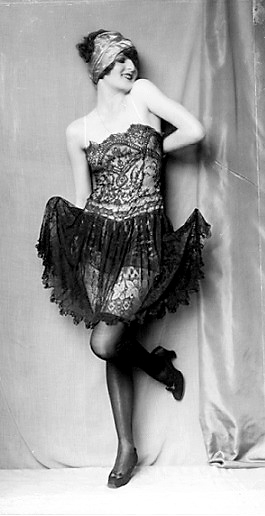
What’s the weirdest thing you’ve researched while writing a book?
The nightlife and underworld of Berlin during the Weimar Republic. One of the more interesting anecdotes was one about Anita Berber, a German dancer and actress. Her daring nude performances, drug addiction and bisexuality made her infamous, and one of her favorite highs was to mix chloroform and ether in a bowl, dipping a white rose into the mix and nibbling the petals. One time when she thought a nightclub audience was ignoring her performance, she stormed offstage, climbed onto one of the nightclub tables and urinated over the nearby clubgoers.
Also, while doing research for my current WIP I’ve learned that chariot races were the ancient world’s equivalent of NASCAR.
Sarah’s note: If you want to read a fascinating book about drug use in the Weimar Republic between World War I and World War II, and then add some drug use and Hitler into the mix, check out this book .
Tell me about an unexpected thing you’ve learned, and how you’ve worked it into your book.
I always liked Greek mythology, and while researching something else I stumbled across a pair of twins sea gods named Bythos and Aprhos, who were essentially sea centaurs – the upper body of a man with the lower front of a horse and the tail of a fish. Greek god genetics are a trip and a half, I can tell you. They stuck in my mind, and when I decided to take a crack at ménage fantasy romance I used them as two of the three leads for my first novel Storm Season.
Let’s talk about BOOKS

Tell me about the most recent book you’ve read.
Mary Bennet and the Bingley Codex, by Joyce Harmon. It’s a marvelous Regency fantasy where Mary Bennet finds a book of spells in her brother-in-law’s library, becomes a mage, and goes off to have adventures.
What book would you like to see turned into a movie, and who should play the leading roles?
I know this is tacky but I don’t care – I would love to see my book Shadow of the Swan turned into a movie, and I’d cast Florence Pugh as Louisa Wallingford, J.J. Feild as Sir Henry Carstairs, and Josh O’Connor as King Avery (aka the Swan King).
Hobbies & all things WEIRD
When you aren’t writing, what can you typically be found doing?
Making sterling silver jewelry in the garage. And by making I mean using an oxy-propane torch, sterling wire and sheet, loose gems, and a buttload of tools to hand-fabricate some really cool jewelry. Still need to learn how to bead set faceted gems but that will probably happen sometime this winter.
How do your non-writerly hobbies influence your writing?
They’re literally part of my writing process. Whenever I’m working on jewelry, knitting, crocheting, quilting, etc. that keeps my hands busy and my mind free to work on sticky plot points, play around with story ideas, or hash out what the next book is going to be about.
What’s the soundtrack to your life?
Florence + The Machine’s How Big, How Blue, How Beautiful.
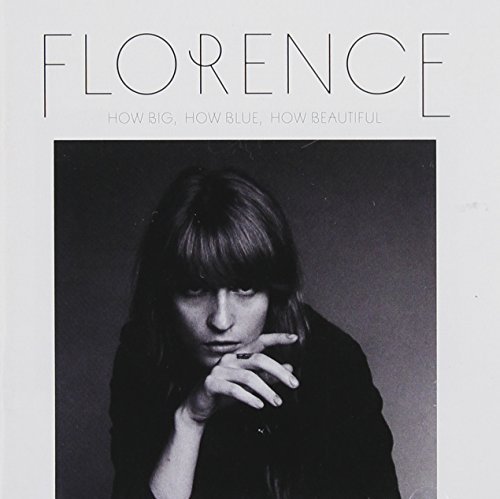
What’s your favorite swear word and why?
Motherfucker. Sorry, but it’s true. It’s just very satisfying to scream when I drop a tiny gemstone in the garage or spill an entire bottle of pop over the kitchen.
Sarah’s note: Preach.
Any final thoughts?
There will be a future. I know it doesn’t seem like it now, what with **waves at the world** but barring an asteroid impact it will come. Hang in there, vote (this is for everyone, not just Americans), wear a mask and wash your hands regularly, tell your loved ones how much you love them, make a plan for getting through the next couple of years, and take as many mental relaxation breaks as you need.
And if you buy my books as well, hey, there’s your mental relaxation right there.
Thanks for stopping by, Nicola M. Cameron! Please check out her website, and make sure you buy her books!
October 23, 2020
Indie Author Interview | C.T. Phipps
This is part of a new series of interviews featuring indie authors. These interviews will drop once or twice a week. If you’d like to be part of this series, please contact me at Sarah (at) bookwormblues (dot) net. Please support the authors by clicking on the affiliate links in the interview, spread the word, and, of course, buy their books.
We’re all in this together, you know?
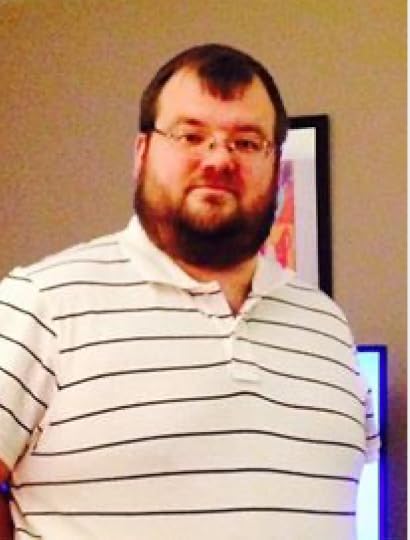
About the Author
C.T. Phipps is a lifelong student of horror, science fiction, and fantasy. An avid tabletop gamer, he discovered this passion led him to write and turned him into a lifelong geek. He is a regular reviewer at The United Federation of Charles and the author of Agent G, Cthulhu Armageddon, The Red Room series, Lucifer’s Star, Straight Outta Fangton, and The Supervillainy Saga.
Links
The United Federation of Charles (blog)
Author website
The C.T. Phipps Fan Club (Facebook)
Facebook
Twitter
Amazon
Describe yourself in six words or fewer.
Funny Kentucky panda.
Tell me about your books.
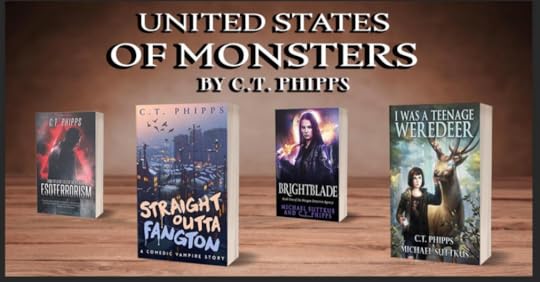
I have a few series that I am very proud of and think are excellent places for people hoping to check out my books to start on.
The first is my interconnected United States States of Monster books that are all set in a shared world where supernaturals have come out to the world and are now struggling for recognition. Some of which are normal people and others are monsters pretending to be people. Yes, so original, I know but I love the idea.
Psycho Killers in Love : A prequel to the rest of the series that is an homage to Eighties and Nineties slasher movies. William England and his sister Carrie are a pair of slashers who have inherited the condition from their father, Billy the Immortal a.k.a The Christmas Killer. Haunted by his ghost, literally, they struggle to build a new life for themselves after escaping the asylum. That’s when William meets the beautiful Nancy Loomis, who just so happens to be a supernatural slasher killer. Can these two fall in love despite their differences? How about slaughter a misogynist cult of serial killers in the process? What will his sister say? Esoterrorism : Another prequel to the Reveal, Derek Hawthorne is a professional spy and assassin who works for the mysterious House. The House keeps the supernatural hidden from the public while using magic to enrich themselves as well as increase their personal power. Derek thinks they’re the lesser evil but has a rude awakening when he’s framed for treason and finds out they may be the bad guys. The only person he can trust is his succubus partner, Shannon, and can he really trust her? I was a Teenage Weredeer : Jane Doe is a weredeer in the town of Bright Falls, Michigan. It is a town with a population of roughly half shifters of various tribes. Jane wants more than anything to escape her rural life but this plan is interrupted by her brother being framed for murder. Teaming up with her dainty werewolf friend, Emma, Jane sets out to find the real killer. Unfortunately, the entire town seems bent on covering up the truth. Snarky puns and kickass heroines in the vein of Veronica Mars and Buffy the Vampire Slayer. Straight Outta Fangton : Peter Stone is the unluckiest vampire in the world. Embraced after a tour in Iraq, he finds himself working the graveyard shift at an all-night gas station while the rest of the undead party in New Detroit. This all changes when a vampire is turned in his business’ bathroom, embroiling him in a complex conspiracy to destroy all vampires.Brightblade: Ashley Morgan is a woman who trained her entire life to be a hunter of monsters for the mysterious House but with the fall of it and Reveal, they’re now protected by law. Trying to be a superhero and failing in a supernatural world, she’s since ended up as broken-down PI. Will the discovery of her vampirized brother and return of her FBI mage boyfriend change her life?
I’m also quite fond of The Rules of Supervillainy, which is the first of six hilarious superhero parodies. Gary Karkofsky is an ordinary schlub, recently fired due to a collapsing economy, when he finds a magical cloak that bestows on him the powers of the legendary superhero known as the Nightwalker. Gary’s desires are to be rich, famous, and powerful rather than to save the world, though. Unfortunately, is he evil enough to be the villain he wants to be?
What makes you and your books unique? Shine for me, you diamond.
For me, I try to make a blender of everything I love about the genres I write in. My books are a celebration of what I love about the genre rather than just books that try to invent the wheel. Straight Outta Fangton is a book about vampires as they’ve evolved in pop culture as much as they are about a specific vampire. It talks about how they grew from being disgusting peasants to suave nobleman and now are exploiting their perceived sexiness to get all the blood they want. The Rules of Supervillainy is more fun the more you know about comic books and how Gary has serious issues with the antiheroes of the Nineties while thinking the immortal heroes from the Sixties are cheesy but fun. He also comments at how modern heroes just keep acting like they’re filming a movie. I was a Teenage Weredeer is my loving homage to supernatural heroines and detective fiction with a dash of Twin Peaks thrown in for good measure.
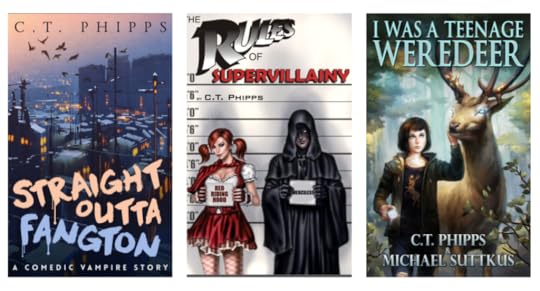
What are you working on now/any future projects you want to talk about?
I am presently working on the next installment of The Supervillainy Saga with The Horror of Supervillainy, which is a send up of the classic Vertigo comics of DC comics as well as its various horror-based heroes. Gary is heading out into a haunted swamp outside his city to deal with Count Dracula and a crooked alien sheriff to rescue the President’s daughter. Yeah, that will go well.
I’m also finishing up the Bright Falls Mystery trilogy with Jane Doe’s final adventure, A Nightmare on Elk Street. Jane has been hired for security on a local B-movie being filmed in a haunted campground. Unfortunately, as happens in these sorts of things, someone is determined to shut the production down with a host of incarnate movie slashers.
Let’s celebrate. What’s one of the best things that’s happened to you as an author? Don’t be shy.
When I got contacted by some fans who thanked me for my representing them in my books. Some said it meant a lot to them and that meant a lot to me.
Let’s talk about CRAFT
If you had to start over with writing and publishing, what would you do differently and why?
I would have started with a bit more research. One of the things you need to know as an independent writer is there’s a lot of people wanting to take advantage of you or promising you the world. I got the benefit of meeting some genuinely decent people like Jim Bernheimer (Confessions of a D-List Supervillain) and David Niall Wilson (Crossroad Press) who showed me the ropes but it required me to meet some people who treated me poorly too.
Tell me about something odd you do when you write? Something about your particular process that is distinctly YOU.
I admit that I am pathologically incapable of writing protagonists who are not full of snark. Even when I attempt to write a serious book, I end up writing them as smartasses. It’s good to have a style, though, and this is the chief appeal of my books like The Rules of Supervillainy, I was a Teenage Weredeer, Psycho Killers in Love, and Straight Outta Fangton. I admit, if I could be the next Christopher Moore I’d consider my career well-justified.

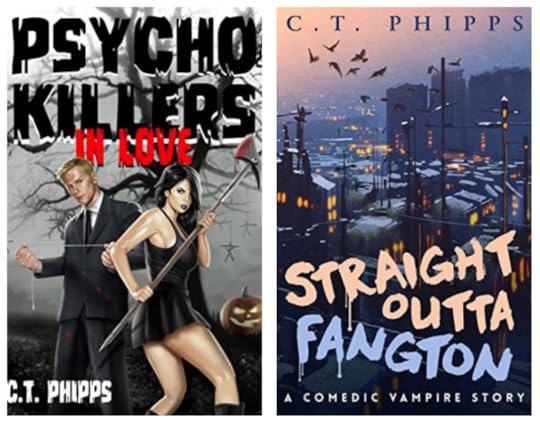
How do you build your world/characters? What does your process of creation look like?
I think my writing process is characters first, then plot, and then writing out how they interact with it. Characters like Gary Karkofsky a.k.a Merciless: the Supervillainy without MercyTM, Jane Doe the Weredeer, William the Reluctant Slasher, and Peter Stone the World’s Unluckiest Vampire are all things that spring fully formed from my mind like Athena. What they do is really the star of my books more than what they encounter.
Plotter or pantser, and why?
Panster. No plot survives first contact with my characters.
Sarah’s note: This answer speaks to my soul.
Let’s talk about diversity. How do you incorporate realistic diversity into your books? And why is it important to you?
I feel that diversity is an important part of writing in the 21st century (not that it ever wasn’t). The world is a colorful place and making it monochromatic doesn’t make it more believable. I find it best to incorporate people of multiple races, religions, sexualities, and genders. The people of those groups appreciate it and it often makes for a richer character.
Usually, I try to make the character first and see if adding an additional layer informs or benefits their story. I try to avoid stereotypes but am pleased to note even if I don’t get it 100% right that minority audiences are usually still supportive. Some of my favorite fans became such because I incorporated characters that other authors did not.

Do you listen to music when you write? What kind?
Blind Guardian, Sabaton, and Halestorm are my go-to writing music. I listened to the retro-1980s hair metal band Crazy Lixx for writing Psycho Killers in Love. It was the band that did the tracks for the Friday the 13th game.
What’s the weirdest thing you’ve researched while writing a book?
Obscure Romanian vampire lore. I wanted to make my Straight Out of Fangton a lot more authentic to the original vampire legends while incorporating many nods to modern concepts. I had a lot of fun with some of the odder ones like the fact vampires are forced to count sesame seeds. Yes, so the Count on Sesame Street is strigoi accurate!
What research tips or tricks would you give another writer?
It’s important to try to immerse yourself in the genre of the subject you’re writing about. Stephen King said that your books will be like milk in the fridge. “It will taste like what you leave it next to.” I find its best to know exactly what you want to write about and then surround yourself with it. If you want to write space opera, do a Star Trek and Star Wars marathon. Want to write post-apocalypse fiction, watch some Mad Max and play The Last of Us. You’ll avoid plagiarism because you’ll know how to put your own spin on things more.
Let’s talk about BOOKS

Tell me about the most recent book you’ve read.
Brock Deskin’s Shrouds of Darkness, which is a vampire story about a hundred-year-old detective that can’t help but hate himself for both what he is as well as what he’s done. Noir and vampires go together well. Other books I’ve been enjoying are A Wizard’s Forge by A.M. Justice, The Rhenwars Saga by M.L. Spencer, A Light in the Dark by Ulff Lehmann, and the Harry Stubbs occult mystery novels by David Hambling.
What book(s) or authors have influenced you, and why?
Christopher Moore, Joss Whedon, and Jim Butcher were huge influences on my writing style. I also owe a lot to Laurel K. Hamilton’s early books as well as Charlaine Harris and Patricia Briggs. All three of them helped contribute to my love of urban fantasy.
What protagonist/antagonist in a book do you relate to the most, and why?
If it’s not cheating, I’m pretty much either Gary (The Rules of Supervillainy) or Jane (I was a Teenage Weredeer) depending on the day.

Let’s throw some light on diversity. What are some books you love that feature diverse characters, diverse authors, etc.
I have a very big fondness for Anti-Lovecraft novels by authors of color and diversity. I love cosmic horror and the Cthulhu Mythos, but their creator had some serious problems. It’s interesting when modern authors claim the mythos for themselves. Victor Lavalle’s The Ballad of Black Tom is incredible with its black protagonist sharing a story of sorcery in Red Hook. Ruthanna Emyrs’ The Innsmouth Legacy is about an asexual Deep One sorceress leaving the concentration camps her people were held in after WW2. There’s also Matt Ruff’s Lovecraft Country, which needs no introduce since the HBO series.
I also love David Niall Wilson and Patricia Macomber’s Remember Bowling Green: The Time Traveling Adventures of Frederick Douglass. That’s overtly political but hilarious.
Hobbies & all things WEIRD
When you aren’t writing, what can you typically be found doing?
I am a husband and puppy parent who cares for both his wife as well as doggies. I also an avid tabletop gamer, book reader, book reviewer, and video game player. So, when I’m not writing, I have plenty of things to do. However, the books are what pays the bills, so I am extremely focused on them. I particularly recommend the Vampire: The Masqueraderecent visual novels and comic books.
Best comic book character ever. Why?
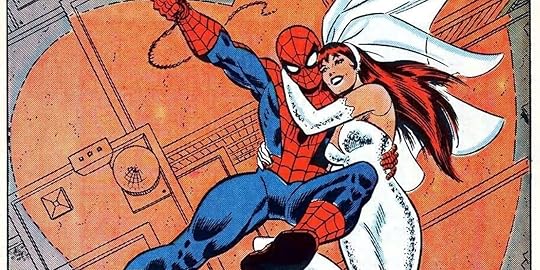
My top three are Spider-Man (married), Supergirl (Kara Danvers), and Oracle (Barbara Gordon). I have to say it’s a toss-up which version I like best. Spider-Man is best when he’s the everyman hard luck hero and I grew up with him married to Mary Jane Watson. I feel like a lot of the character was destroyed. Supergirl is amazing and I’m so glad the television show has expanded awareness of her character. Barbara Gordon as Oracle is one of my all-time favorite characters and I hate that the mature dangerous adult has been regressed back to Batgirl. Harley Quinn, Cassandra Cain, and Cassie Hack are also on my list.

If you had to pick a superpower, what would you pick and why?
Magic. Flexible and arcane.
If you were an animal, what would you be and why?
Panda. Eat, sleep, look adorable.
What’s the soundtrack to your life?
Talking Heads – “Psycho Killer”
Any final thoughts?
*holds up hyno-coin* Buy my books, buy my books, buy my books. You will find them hilarious.
Thanks for stopping by, C.T. Phipps! Make sure you check out his website, and buy his books.
October 19, 2020
Indie Author Interview | L.E. Harrison

About the Author
L.E. Harrison is the author of the award-winning contemporary fantasy trilogy The Children of Corvus, as well as a collection of previously published poems and short stories. She decided she wanted to be an author in the fourth grade, when she began writing poetry, plays, and stories.
A lifelong avid reader and lover of genre fiction—from science fiction to paranormal romance, and everything in between—she’s inspired by books that blur the boundaries, and by the authors who manage to do it exceptionally well. She lives in a one hundred and sixty year old farmhouse in rural Pennsylvania, where she is working on the next chapter in the universe of Soluna’s children.
Links
Facebook
Goodreads
Instagram
Twitter
Bookbub
Mailchimp
Newsletter sign up
Soundcloud
Books2read profile
Amazon
First off, tell me about your books.
The Children of Corvus Series: Travel through the Great Shield, and discover the world of the Children of Corvus. Protected by the Great Shield, the tribe lives united in their love and reverence for Corvus, the god of beasts, who had once bestowed a sacred gift—the ability to transform into the divine entity known as Bestiae—upon his descendants. Now, vestiges of this diluted power trigger a curse the Sacred Order calls the blood madness. Corvus’s Sacred Law proclaims that to guarantee the blood madness will not be passed to future generations, every male with the curse must be executed.
Blackbird (The Children of Corvus #1): Book one in the compelling contemporary fantasy trilogy about a tribe of shapeshifters, deep within the inhospitable forest of northern Maine USA, in an alternate dimension known as Blackwater Hills. Alena Andrick is the only child of the Guardian of the Dead. Her safe, predictable life is turned upside-down when she meets Michael Singleton at the Solstice celebration. When Michael is accused of murdering the Captain of the Guard, Alena is forced to choose between obeying her instincts or the laws of her people.
Merula (The Children of Corvus #2): What if you were a shapeshifter, but didn’t know it? What if the man who raised you orchestrated your father’s execution? What if you discover that the people closest to you have been lying to you all your life? To save the life of her childhood friend, Samuel Singleton, Cadie Maxwell must expose the corruption within the Sacred Order, forswear her holy vows, and uncover the truth about her gods and her tribe.
Corvus (The Children of Corvus #3): A witch and a son of Corvus must combine their powers. To defeat the witch goddess and save the souls of the Merulas trapped inside the Shadowlands, Samuel Singleton must embrace his position as leader of the tribe, and accept Bestiae—the god-like part of himself he can’t control. Cadie and Samuel In the Interim: A Children of Corvus Short Story: The events in this short-story take place during the weeks between the novels Merula and Corvus. Focusing on Samuel Singleton and Cadie Maxwell’s brief romantic interlude, the story adds depth and understanding to their complicated emotional connection.

From the Uncollected Thoughts of L.E. Harrison: A collection of previously published poems and short stories. More Lore From the Mythos (Fractured Mind Publishing): Short story – The Time Guardian. Coming October 17, 2020 More Lore From the Mythos Volume 2 (Fractured Mind Publishing): Short story – Tony’s Monster.
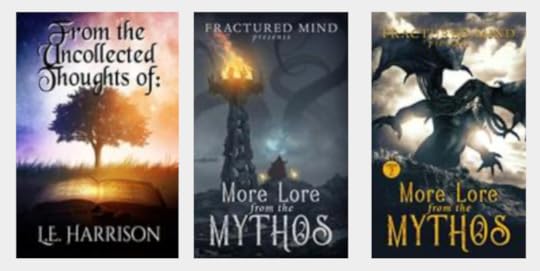
What makes you and your books unique? Shine for me, you diamond.
I’ve developed the concept of an expanded universe, within which all of my books are connected. It’s something that helps me visualize the individual world of each story, and better understand where all of my characters fit and how they interact. For example, the gods Sol (Father Sun) and Luna (Mother Moon) had four children—Fatum (the god of fate), Tempus (the god of time), Venefica (the witch goddess of magic), and Corvus (the god of beasts). So, each series I have planned follows the descendants of one of these four gods. I’m not sure how obvious this might be to readers at this stage, however, since I have so far only completed The Children of Corvus trilogy, and two short stories set in the world of The Children of Tempus.

What are you working on now/any future projects you want to talk about?
I have several projects in the works at the moment. I’m currently focusing on finishing a novel featuring the daughters of Venefica the witch goddess, about a witch who is obsessed with a famous rock star. After that, I’ll start working on the third installment of my short story series for Fractured Mind Publishing’s More Lore From the Mythos next anthology, which is scheduled to be published in October 2021 (Volume two will be released in October 2020). I have two novellas in the works for The Children of Corvus series. I’m also working on a novel in The Children of Tempus series, called The Four Immortals, and compiling a poetry collection called Letters In the Attic.
Let’s celebrate. What’s one of the best things that’s happened to you as an author? Don’t be shy.
All three of the books in my series The Children of Corvus are IHIBRP 5-Star Recommended reads. Book two, Merula won the bronze in the 2018 Virtual Fantasy Con Awards for Best Dark Fantasy, and was voted one of Read Freely’s 50 Best Indie Books of 2017. The Blackbirds: The Children of Corvus Omnibus was chosen as one of the Best Books We’ve Read All Year by Read Freely.

Let’s talk CRAFT
What does your writing space look like?
When my second-oldest daughter moved out, I turned her bedroom into my office. It’s in the front of the house and faces west, so when I’m writing I get to watch the sun set over a grassy field surrounded by trees.
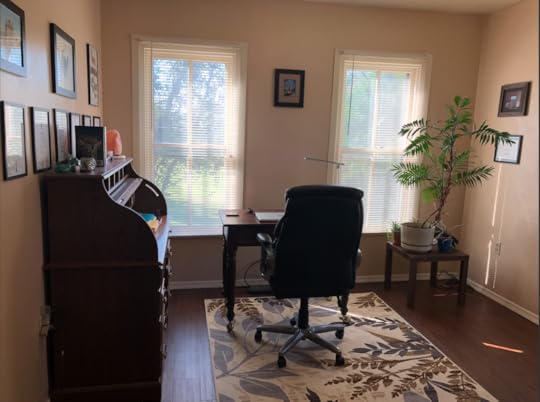
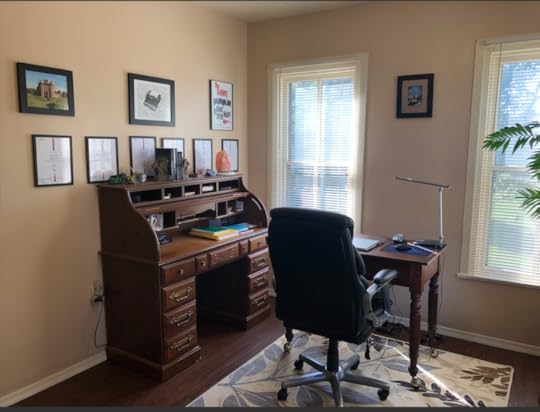
Tell me about some of your personal writing pitfalls and what you do to avoid them.
My sixth grade English teacher wrote, “Lisa, you are comma happy!” on one of my creative writing projects. In red pen, with a lot of exclamation points. So, I guess that tells you all you need to know about my worst bad writing habit. I’ve trained myself to cut most of them when I edit, but I’m pretty sure I still end up with too many!
Sarah’s note: SAME. Solidarity.
Do you listen to music when you write? What kind?
Yes, absolutely! I actually can’t write most of the time without music blasting through my headphones and blocking out distractions. The type of music I listen to varies, depending on which project I’m working on. My playlists are kind of all over the place. Beck, The Beatles, Styx, Queen, The Monkees, Cage the Elephant, Benjamin Jayne, and Foo Fighters are artist who frequently show up. I find that certain songs capture the moods of the characters and scenes in a particular novel or story, and so I’ll make playlists to reflect that. For example, one of my characters, Cadie Maxwell, seemed to vibe best to The Grand Illusion by Styx and The Game by Queen, so I would always listen to those albums while writing scenes from her point of view. For my current novel-in-progress, I have the album Fine Line by Harry Styles on repeat.
What are some of the most interesting rabbit holes you’ve found yourself lost down?
I guess it would be discovering the existence of America’s Stonehenge in New Hampshire, while I was researching standing stone observatories in North America. Apparently, there are many ancient standing stone circles in the United States. America’s Stonehenge also went by the nickname Mystery Hill, so that was the name the children of Corvus ended up calling their version of standing stones and labyrinthine rock chambers where the priests of the Sacred Order perform their rituals. I did get a chance to visit the real site while I was writing book one. The version I created for the series was heavily influenced by the history and layout of the historical area.

Have you ever researched something, and what you’ve learned completely changed your book? What was it, and what did you do about it?
When I began writing The Children of Corvus series, there were certain things I knew about the geographical area where my characters lived. The first, was that it was mostly primordial forest that was magically hidden from the rest of the modern world. The second, was its name: Blackwater Hills. There was a river that my characters called the Blackwater River, which ran through the center of their shielded territory. The third thing I was certain of, was that it was located in Maine, USA. When I resolved to get serious about actually finishing the story, I began to research maps and towns in northern Maine. A few miles south of a small town called Ashland, I found a spot that seemed to match the terrain and location I had previously only seen in my imagination. I was shocked to discover that a river named the Blackwater River ran right through the spot I had chosen on the map! I haven’t visited Ashland or the actual river yet, but I do plan on taking a trip there soon.
How has technology, and research of technology, influenced your writing.
Because I write mostly contemporary fantasy—that is, fantasy set in the modern era—all decisions about which decade each story ought to be set have to be partially based on the technology that existed in that time period. Given that it is fantasy, however, there is still a bit of leeway there.
Let’s talk about BOOKS
What’s your favorite book as a child?
I’ve been an obsessive reader all my life, so it’s hard to pick one favorite book! I loved Judy Blume’s books when I was in elementary school. Later on, around seventh grade, The Outsiders by S.E. Hinton was a huge influence on me. That was the book that made me seriously consider writing as a career.

What book(s) or authors have influenced you, and why?
Carol Berg writes flawless prose and characters that leap off the page. I’ve read all of her books at least twice. Jennifer Roberson’s Sword Dancer series is amazing. Reading her books made me want to write in the fantasy genre. I was obsessed with Stephen King novels for many years. The Stand and 11/22/63 are two of my favorites of his. I also love the character Lestat, from Anne Rice’s Vampire Chronicles. Anne Bishop’s Black Jewels series is a must read for fans of dark fantasy. For science fiction, you can’t find anyone better than Connie Willis. Judith Merlke Riley is simply brilliant. I’m also a huge fan of Diana Gabaldon’s Outlander series, Jeff Vandermeer’s Southern Reach Trilogy, and The Black Witch Chronicles by Laurie Forest. The list goes on, but that’s a sampling of the authors I enjoy reading.
Hobbies & all things WEIRD
When you aren’t writing, what can you typically be found doing?
Reading, of course. Before the disaster known as the year 2020, I did a lot of traveling around the country. I also enjoy gardening, and yoga. When my kids were small, I did a lot of cooking and baking, but now that they’re all adults I mostly only bake desserts during the holidays.
What’s your strangest talent?
I have synesthesia and a photographic memory. I can walk through a room and—if I’m paying attention—I will be able to recall where every object is located. I can also recall most conversations, verbatim. My husband frequently makes use of the former talent but, as you can imagine, he’s not too crazy about the latter!
Sarah’s note: Whereas I can’t even remember what I did ten minutes ago…
What’s the soundtrack to your life?
These are a few songs whose lyrics I identify with, and that have deep meaning to me for various reasons: Heart Is A Drum by Beck, Fixing A Hole and You Never Give Me Your Money by The Beatles, The Pretender and MIA by Foo Fighters, Words by The Monkees, Watching the Wheels and Working Class Hero by John Lennon. Gypsy by Fleetwood Mac, No One Is To Blame by Howard Jones, Along Comes Mary by The Association, Drive by Incubus.

What’s your favorite food from a country you do not live in?
Tamales. Love, love, love Mexican food!

Any last thoughts?
Sarah, thank you for your interest. I love meeting new readers, so if anyone would like to connect on social media, that would be awesome!
Thanks for stopping by L.E. Harrison! Remember to check out her books and stop by her website!
October 16, 2020
Indie Author Interview | A. A. Freeman

About the Author
A. A. Freeman is a robot shark who writes while the boss isn’t looking. When she’s not thinking about kissing robots she’s either knitting or saving her team in Overwatch. You can follow her adventures in publishing at:
Twitter
Blog
Instagram
Facebook
Tumblr
Patreon
Email
Fanfiction
Amazon

First off, tell me about your book.
My latest book The Worth of Hair is a retelling/sequel to the classic Hans Christian Anderson version of The Little Mermaid, touching on the broken hearts and destroyed lives left in the wake of that story. All of it is centered around The Midwife, a snarky know-it-all of the world of fairy tales that’s trying to deliver the new royal babe while picking up the pieces The Little Mermaid herself left behind.
Sarah’s note: I edited this, and it was, hands down, one of the supreme delights of my year. It’s FANTASTIC.
What makes you and your books unique? Shine for me, you diamond.
I’m sure some people will consider these negatives, but with The Midwife Fable Series I’m aiming to create fairy tale retellings without all of the sex and violence that comes with other retellings. You know who I’m talking about. Instead I’m creating funny, yet dramatic stories with a strong female cast that’s appropiate for young and old alike.
What are you working on now/any future projects you want to talk about?
While I work on the Midwife Fables Series I’m also working on a sci-fi/romance novel called Echo of the Larkspur. It’s about a paranoid scientist learning how to love with the help of snarky robot with a memory problem. You can read the first chapter here.
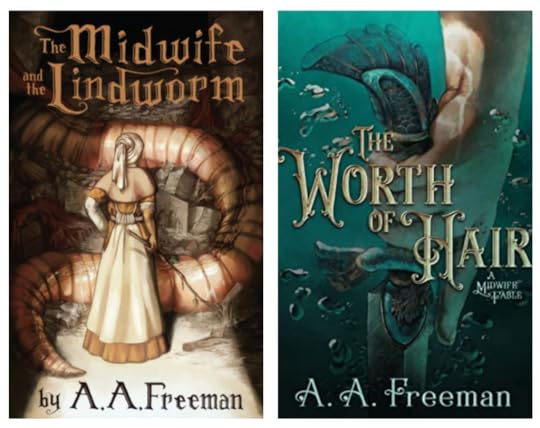
Let’s celebrate. What’s one of the best things that’s happened to you as an author? Don’t be shy.
Every single review on my novels or comment on my fanfic is like a getting a kiss on the forehead from heaven. Even if it’s just a keyboard smash or “I read this book”, I love them all.
Let’s talk CRAFT
What is one thing that you’ve learned about yourself as a writer?
That self-indulgent scene that’s over the top and will probably make a few eyes roll when read? Write it. No matter how smultzy or tooth-rotting it is. The world’s on fire for Pete’s sake, put that fluff in!
Tell me about something odd you do when you write? Something about your particular process that is distinctly YOU.
Post-its. Color cordinated, size cordinated, all over the wall next to my computer desk. One of these days I’ll go full red string consipriacy with my book plotting but this will do for now.

What does your writing space look like.
Remember that part in Labrynth with the people who carry all of their most important items on their backs? Imagine that but there’s a card table with a cheap computer in the middle of it all.
How do you build your world/characters? What does your process of creation look like?
All my worlds come in slowly piece-by-piece. At first it’s just a bunch of faceless characters on a blank background saying words but as the edits go by more and more details trickle in until suddenly I have to figure out what a space colony on Ceres looks like.
Plotter or pantser, and why?
Gotta plot. Not a full step-by-step every word figured out plot, but a general guideline so I don’t get lost.
Tell me about some of your personal writing pitfalls and what you do to avoid them?
Maybe it’s a side effect of my ADHD but I use a shotgun approach of using commas, parathesis, colons, and my most beloved the em-dash. Oh em-dash! One day I’ll actually learn the shortcut for you instead of just putting two dashes together and annoying my editors.
Let’s talk about diversity. How do you incorporate realistic diversity into your books? And why is it important to you?
If I see another cast made up of only cis white straight characters I am going to chew my own leg off. I can’t stand it. The world is so wonderfully diverse in so many ways! To limit yourself to the most milquetoast of characters is baffling! Wait, am I allowed to curse? I don’t think I should curse. So let me cut myself off by saying oh man it is very, very important.
Do you listen to music when you write? What kind?
I’ve found that the best white noise for my writing is “nerds discussing overcomplex boardgame rules”. Thank God for Youtube.
Sarah’s note: I’m laughing so hard right now! Is this actually a thing?!
Let’s talk about RESEARCH
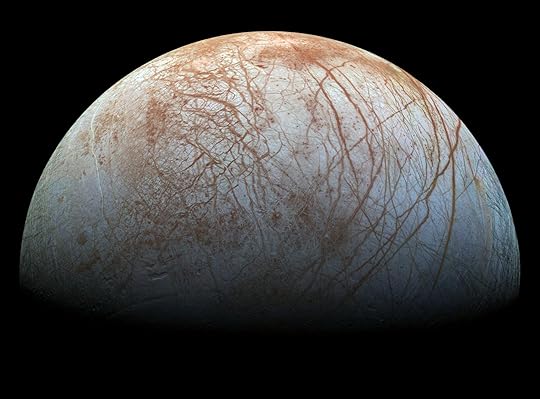
What’s the weirdest thing you’ve researched while writing a book?
Did you know that the ice on Europa is so cold that it’s not slippery?
What does your research process look like?
It’s a lot of heading over to the Space subreddit and asking a LOT of dumb questions. Mostly about how explosions would work on different planets. Turns out Titan isn’t as explode-y as one would think.
Tell me about an unexpected thing you’ve learned, and how you’ve worked it into your book.
That there was a sighting of the Jersey Devil in my hometown in the late 80s! This is not connected to the same stories that I’m doing my planet research for, sadly.

Weapons are cool. They often require research. Tell me about a cool weapon you’ve researched and used in your writing.
I had someone get stabbed by a very sharp seam ripper and had to figure out how badly that would mess someone up. Uh. Don’t get stabbed by a seam ripper.

How has technology, and research of technology, influenced your writing.
My God, the fact that I can now run questions past experts in the field has made my scifi writing slightly less stupid. I’m so very thankful.
All things BOOKISH

Tell me about the most recent book you’ve read.
The Gentleman’s Guide to Vice and Virtue. Oh man. This is the good stuff. The love, the yearning, the angst, so perfect.
What’s your favorite book as a child?
I forget the exact title but this HUGE book of Greek Myths my parents let me read (and probably shouldn’t have). I would read that sucker backwards and forwards all through my childhood.
What book(s) or authors have influenced you, and why?
When I was eleven years old I read The Hitchhikers’ Guide to the Galaxy and to this day remember the line “The ships hung in the sky in much the same way that bricks don’t.” absolutely smacking me right between the eyes. My little self had only read very dry school books before hand and didn’t know that you could DO THAT with the written word.
What book would you like to see turned into a movie, and who should play the leading roles?
I’m still waiting for a Peter Jackson level epic movie for Dreamquest of the Unknown Kadath. The lead? Um. Let’s say Oscar Issac. And not just because I’m crushing on him.
What’s your bookish guilty pleasure?
FANFIC! Some people may damn me but my God I love fanfiction so much. I’ve probably read more fanfic than actual books by this point. Look, sometimes I just gotta go over to Ao3 and search for my favorite couples by “first kiss” and spend an evening drowing in fluff.
All Things Weird
When you aren’t writing, what can you typically be found doing?
I’ve currently become completely enraptured by cross stitch. But not any cross stitch, no. I’ve gotten into making as many Good Omens themed cross stitch projects as I can find. And there’s a shocking number of them out there! Here’s my current wall of finished projects:
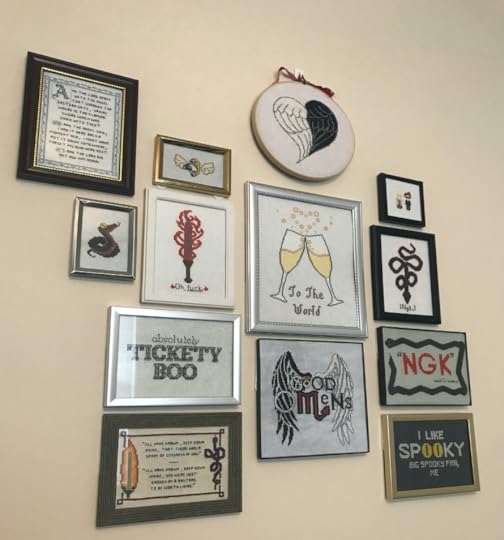
I am a firm believer that we all have to be a little weird to do what we do. What makes you delightfully wacky?
My numerous mental illnesses combined with odd coping behaviors all mixed together in a vat containing way, way, WAY too much anime and video games.
What’s something you want to learn how to do? Why?
Sewing. I can barely sew. I would love to be able to make actual clothes and not my currest sewing skill level of “can kind of patch up holes in my clothing, sorta”.
How do your non-writerly hobbies influence your writing?
There’s a shockingly large number of knitted objects in my writings, and I’m making official patterns for each one!
Tell me about something in your life that brings you joy. What is it, and why?
The Internet. I know it’s a cesspool, but being able to reach out and talk to people I never would have ever met and learning about their lives really makes the day a little brighter.

Best comic book character ever. Why?
Marvel stop being a coward and bring The Amazing Slapstick to the MCU
What’s a hobby you had as a child that you no longer do?
Drawing! I used to draw all of the time! I was very bad at it. When I reached High School I realized that while I was bad at both writing and drawing, if I stuck with one I could probably stop sucking at it. I went with writing.
If you had to pick a superpower, what would you pick and why?
Invisibility. And yes I would use it to rob banks.
We all have family recipes. Share one of your favorite ones.
My Cousin Jennie’s Rock Cookies! Don’t worry, I shook her down for the recipe:

Give me an elevator pitch about YOU.
Do you want someone non-threatening who’s bad at social interactions? And cries a lot? Then buddy I got the human for you!
What’s your favorite holiday and why?
Halloween Halloween HALLLOWEEN HALLOWEEN HALLOWEEN

What’s the soundtrack to your life?
I’m not going to lie it’s mostly They Might Be Giants and Ninja Sex Party, as if it wasn’t clear enough that I’m an utter nerd.
What’s your favorite swear word and why?
Wait, does this mean I could have cursed this whole time? Fuck!

October 14, 2020
Review | Beethoven: Anguish and Triumph – Jan Swafford

About the Book
Jan Swafford’s biographies of Charles Ives and Johannes Brahms have established him as a revered music historian, capable of bringing his subjects vibrantly to life. His magnificent new biography of Ludwig van Beethoven peels away layers of legend to get to the living, breathing human being who composed some of the world’s most iconic music. Swafford mines sources never before used in English-language biographies to reanimate the revolutionary ferment of Enlightenment-era Bonn, where Beethoven grew up and imbibed the ideas that would shape all of his future work. Swafford then tracks his subject to Vienna, capital of European music, where Beethoven built his career in the face of critical incomprehension, crippling ill health, romantic rejection, and “fate’s hammer,” his ever-encroaching deafness. Throughout, Swafford offers insightful readings of Beethoven’s key works. More than a decade in the making, this will be the standard Beethoven biography for years to come.
992 pages (kindle)
Published on August 5, 2014
Buy the book
I’ve never read a biography of Beethoven before. It wasn’t that I wasn’t interested, it was more that there were just so many other things to read, so I kept forgetting. The thing is, Beethoven is the ultimate tragic story. He had a pretty horrid life, and his experiences hugely informed the music he wrote. I think my favorite biography in the history of biographies is one I recently-ish reviewed on Van Gogh, who likewise lived a pretty tragic life which hugely informed his art. Reading that biography got me thinking about Beethoven, so I looked up a book and let it rip.
Now, Jan Swafford writes biographies of musicians (I have another one, set to drop in December, on Mozart and it is amazing). The books, however, are huge. I mean, HUGE. He writes 1000 page explorations of the lives of such individuals as Brahms and Beethoven, Mozart (coming soon) and the like. Swafford is a composer and writer, and I believe (don’t quote me on this) he has also taught music theory. The guy comes to the game with a lot in his arsenal, and it shows. Biographies can be hard, especially when the figures are infamous, because sometimes it feels as though the individual being written about somehow supersedes the author and directs the book from his/her place in history. However, Swafford retained complete control over Beethoven throughout the book, which is no small feat, considering how large the man looms in history.
At one point when she had lost a child, Beethoven invited her over, sat down at the piano, and said, “Now we will converse in music.” For more than an hour he improvised for her. “He said everything to me,” Ertmann later told Felix Mendelssohn, “and finally gave me consolation.” It must have been a heartrending scene, Beethoven making music for a bereaved woman who played and understood his work as well as anybody alive. He gave voice to her grief and offered her hope. Here was a microcosm of what all his music does: it captures life in its breadth of sorrow and joy, spoken to and for the whole of humanity. Beneath the paranoid, misanthropic, often unbearable surface, Beethoven was among the most generous of men.
I will say that a background in music is not necessary for enjoying this book, but it is helpful. I have played the piano for thirty years, and the French horn for just under that. Music put me through college via scholarships. I’ve played in more symphonies than I can possibly ever even attempt to remember. I know music, and still, some of these deep dives describing Beethoven’s various music could be, at times overwhelming. It does help to listen to the pieces as Swafford describes them, so you can kind of follow via audio what he is detailing in the books, but I anticipate that this might be the part of the book that will either make or break the reader. Now, before you freak out and say “I don’t want to read this” understand that Beethoven was as much a man as a musician, and to understand his life, you really do have to understand his music because that was how he communicated with the world. And yes, you can skim lengthy musical discussions.
An example of some of the musical lingo here:
In a long-unfolding melody of various phrasing, without hurry it drifts down from B-flat to D below the staff, then over the next twelve bars slowly wends its way up to B-flat above the staff, then sinks down an octave.
Swafford, as I’ve said, holds mastery over his subject. While everyone seems to know at least one thing about Beethoven, Swafford seems to know everything. The book is filled with details, with nuances, with all those things that makes the man feel like less a looming historical figure, and more a human who actually existed in the world. Furthermore, while I do think he lingers a bit long on some of the musical analyzation, Swafford never really gets bogged down by any one part of the story as a whole. He tells a very well-rounded story of his subject, painting him as a sort of misunderstood genius, a man who was chronically out of place, just enough of a step away from the social “norms” to make him feel utterly and completely out of sync most of the time.
Perhaps one thing I took away from the book more than almost anything else was how incredibly sad Beethoven’s childhood was. His father, determined to make the next Mozart out of his son, basically drove Beethoven to eat, drink, sleep, and dream about music, forcing him to spend hours at the piano, sometimes in the middle of the night. Punishments were brutal, involving beatings and being locked away. While he had siblings he played with, and friends of a sort, he never really learned how to be a human in the world. Everything he did was focused on music, and so he never really learned how to communicate, how to interact with others. A harsh judge of himself, he imposed that same eye to the rest of the world, often finding that the world fell short of his expectations.
Music was the one extraordinary thing in a sea of the disappointing and ordinary. Reared as he was in a relentless discipline, instinctively responsive to music as he was, the boy never truly learned to understand the world outside music. Nobody ever really demanded that of him until, disastrously, near the end of his life. Nor did he ever really understand love. He could perceive the world and other people only through the prism of his own consciousness, judging them in the unforgiving terms he judged himself.
I also didn’t know that Beethoven was really one of the very first actual piano players of the world. Up to his day, most everyone who played, played on the harpsichord, and then moved over to the piano as it became more popular. Beethoven, however, started on the piano and stayed there.
So much of the music Beethoven created was a reflection of not only his inner turmoil (I’d argue, the man was rarely, if ever, truly happy), and the political upheavals around him. Living in a time of the Enlightenment, Napoleon, and all the political and social changes that ensued, life was not short of such influences from which to base his music off of. While Swafford can go a bit deep in on the music, it was fascinating to read about a lot of these compositions and set them against the backdrop of such tumultuous times, health problems, mental health, and depression. It truly helped me understand what Beethoven was trying to say when he crafted some of his most recognizable, powerful pieces, which helps me appreciate his mastery of the musical language in a way I never truly did before reading this book.
Some of the problem with Beethoven is that he’s larger than life, nearly mythologized, and that started happening even when he was alive. Doubtless, that made the man, who had always struggled with being part of the human animal, feel that much more an outsider. I also think it’s likely why I’ve always wanted to read a biography of Beethoven, but never quite got around to it. It’s hard to take someone so large and grand, and make them both human and understood, and yet somehow Swafford managed it, showing not just the musical genius that was Ludwig van Beethoven, but also the man behind the mask, the often tortured, darkly feeling, judgmental, out of sync human who seemed to be somewhat akin to the outsider looking in. And yet, despite all of that, he still managed to retain a generosity of spirit and hope for something greater that was always hinted at in even his darkest pieces.
“There’s something singularly moving about that moment when this man—deaf and sick and misanthropic and self-torturing, at the same time one of the most extraordinary and boundlessly generous men our species has produced—greets us person to person, with glass raised, and hails us as friends.”
This is not a small book. It weighs in at slightly shy of 1000 pages. It’s a beast, but I will honestly tell you, I’d sit down to spend ten minutes reading, and before I realized what happened, half the day would be gone. This biography sucked me in. I lost so much time to it, and I didn’t regret that at all. The only other biography that has managed to captivate me so thoroughly was the one I mentioned at the start of this review, on Van Gogh.
I can truthfully say, I will never hear another Beethoven piece the same again. This is, hands down, one of the best biographies I’ve ever read.
5/5 stars
October 13, 2020
Review | Queens of the Wyrd – Timandra Whitecastle

About the Book
Raise your shield. Defend your sisters. Prepare for battle
Half-giant Lovis and her Shieldmaiden warband were once among the fiercest warriors in Midgard. But those days are long past and now Lovis just wants to provide a safe home for herself and her daughter – that is, until her former shield-sister Solveig shows up on her doorstep with shattering news.
Solveig’s warrior daughter is trapped on the Plains of Vigrid in a siege gone ugly. Desperate to rescue her, Sol is trying to get the old warband back together again. But their glory days are a distant memory. The Shieldmaidens are Shieldmothers now, entangled in domestic obligations and ancient rivalries.
But family is everything, and Lovis was never more at home than at her shield-sisters’ side. Their road won’t be easy: old debts must be paid, wrongs must be righted, and the Nornir are always pulling on loose threads, leaving the Shieldmaidens facing the end of all Nine Realms. Ragnarok is coming, and if the Shieldmaidens can’t stop it, Lovis will lose everyone she loves…
Fate is inexorable. Wyrd bith ful araed.
412 (paperback)
Published on November 21, 2019
Buy the book
I’m going to be honest with you, dear reader. I am at the point where it almost takes an act of god for me to read a Viking-based fantasy and like it. However, I just edited a few that have knocked my socks off, and I absolutely loved the cover on this one. I saw it right after I finished said editing projects, and I figured I was on a bit of a Viking roll, so why not see if I can keep it going?
Friends, this book was amazing.
First of all, on the surface this book feels a bit like an answer to Nicholas Eames’s Kings of the Wyld, and I guess it is. The story follows the same patterns and walks down a very similar path, but if you stop there, you’re really missing all the delightful things that are going on under the surface. And there is a lot going on here. I think, perhaps, it was all the layers I enjoyed the most. I always do have a bit of a soft spot for books and authors who take standard fantasy tropes and flip them on their heads.
The skalds say that in the beginning, there was nothing but ice. They say before the beginning there was another world tree but it died, wrapped in sheets of ice and cold, and perhaps Nornir came from that older reality to tend this one, and when this tree dies in the flames of Ragnarok, burned to cinders and ashes, they will plant a new seed in its place by their fountain, and wait.
For the end of a world pays its debts, but also owes itself a new beginning.
Much like Kings of the Wyld, Queens of the Wyrd takes readers on a bit of a journey. A retired band of shieldmaidens forms up once again in an effort to rescue one of the members’ daughter. In said quest, things happen, and wackiness ensues while Norse mythology and various fantasy tropes are marched out, and either summarily dealt with in a rather terminal manner or flipped on their head to show them as different than they usually appear. Now, readers who enjoy fantasy involving quests and adventures will doubtlessly love this. I’m typically not one of those readers, however, this one kept me engaged simply because the storyline was this intoxicating blend of familiar and totally unique, and there was always something happening that I hadn’t really anticipated.
And, let’s be real for a moment. There are not a whole lot of fantasy books out there involving a fierce band of warrior women hellbent on saving the day. We just don’t see that very often, especially with Norse mythology, which is weird because shieldmaidens were very much a Thing and so were the Valkyrie and the like. (This is likely why setting a story like this in a Norse-flavored world was such a good decision. There are so very many strong women in that particular arena.) Whitecastle does a great job at spinning everything to fit into her unique fantasyscape. Her spin on mythology was nothing short of fantastic, and sometimes even humorous. Her world is large, and I enjoyed how she hinted at the vast scope and size of it, leaving me to believe there’s wiggle-room for her to add on to this world in future books, if she chooses. Furthermore, while the fantasy is very much a large part of this book, it never overshadowed the story being told, and I truly enjoyed that particular balance.
If you want change, you must invite chaos.
This book isn’t just a bunch of mothers on a quest to get back a daughter in peril. As I said above, there’s a lot under the surface. I truly enjoyed the dynamics of family, love, and loyalty that suffused Queens of the Wyrd. It took this from being just another book with a bunch of people trying to do something and turned it into a book that has a shocking amount of depth and heart, a lot of very poignant moments to balance out everything else. It was, perhaps, that balance that was one of the determining factors for my overall enjoyment. One of the reasons I don’t typically like quest/adventure fantasy is because I feel like it so often devolves into predictable battles and fart jokes and I really didn’t find that here. Whitecastle could have taken the easy road, but she didn’t. Yes, there’s battles and levity, but there’s also a whole lot of emotion. A band of mothers going out to save a daughter trapped in an ugly siege? How can there not be a lot of heart in that? There’s a whole lot of emotional play that mothers and women all over will connect to on a very profound level.
The characters are all very well drawn, and they have to be to be able to reach past the wham-bam moments and tug at your heartstrings. All of the shieldmaidens bring something unique to the group. Each of them have their own voice, their own nuances, and history. The dialogue is very modern feeling, which might be off-putting to some readers, but I ended up enjoying it. That modern-feeling dialogue was part of the reason this was such a fun, fast read. It helped keep me focused on the story being told, rather than spending time parsing out the subtle flavors in the words used, and the deeper meanings behind them. Don’t get me wrong, I do love some lyrical prose (hello, my books.) but there is a time and a place, and I felt like Whitecastle’s prose were the perfect complement to the story being told.
“We are a generation raised by strong, single mothers,” Lovis interrupted. “And we’re raising the next generation as strong, single women. Having a husband is not the answer for everything.”
So what do you have here? A bunch of badass mothers. Women on a quest. Nonstop adventure and pulse-pounding action. A relentless story that refuses quit. Love, loyalty, and family. Fierce women who fight their own battles, steal the limelight, and are absolutely, positively unforgettable.
What an absolute joy this book was.
5/5 stars
October 12, 2020
Indie Author Interview | Lee Conley

About the Author
Lee is a musician and writer in Lincolnshire, UK. He lives with his wife Laura and daughters Luna and Anya in the historic cathedral city of Lincoln. Alongside a lifetime of playing guitar and immersing himself in the study of music and history, Lee is also a practitioner and instructor of historic martial arts and swordsmanship. After writing his advanced guitar theory textbook The Guitar Teachers Grimoire, Lee turns his hand to writing fiction. Lee is one of the founders of Bard of the Isles literary magazine and is now also studying a degree in creative writing while working on his debut fantasy series The Dead Sagas, which includes the novels A Ritual of Bone and A Ritual of Flesh, as well as also generally writing speculative fiction and horror.
Links
Website
Mailing list
Twitter
Facebook
Instagram
A Ritual of Bone
A Ritual of Flesh
First, tell me about your book.
The Dead Sagas series is a horror fantasy. It is the escalating story of a zombie apocalypse but set in dark fantasy/early medieval style setting, told from a variety of point of view characters. Some folks have described it as Vikings versus zombie, with an Evil Dead vibe. Which to be fair isn’t too far wrong. It’s heavy on horror, in fact it is a horror novel, I have tried to make it dripping with sinister malice, but it has a fantasy setting—dark forests, hill forts, a norse-esque/Saxon England style culture, and of course a variety of zombie styles, monsters, and evil demon type things. If that sounds interesting and you enjoy horror or grimdark fantasy please do check out A Ritual of Bone.

What makes you and your books unique? Shine for me, you diamond.
Well I love horror, in particular zombie and occult films, and also read A LOT of fantasy, so it seemed obvious to me to marry the two together and write a horror novel set in a historically influenced fantasy world. Horror fantasy, something I thought was fairly common place, as many fantasy books have horror elements and visa-versa, but it seems it isn’t as common as I thought, at least not how I do it and it appears I have stumbled into a bit of a niche. I’m certainly not the only one doing it, so I wouldn’t say it makes me unique, but the whole fantasy horror/zombie combo seems to have caused a little bit of a stir, which is great! Also I have never read a book that truly scared me, so my quest is to also incorporate all the things that I find genuinely scary and unsettling into a book and set it in one of my beloved fantasy settings and see if I can scare people.
What are you working on now/any future projects you want to talk about?
I am finishing The Dead Sagas, I think there will be possibly two more books in the main series—unless I can wrap it up in one mega last book, but I will likely do it as two more volumes. I also plan to do standalone or two set in the world I have created, or destroyed, depending on how you look at it. Alongside The Dead Sagas, I love writing poetry—mostly dark nasty sinister horror poetry—and short stories. I am currently putting together a collection of contempory horror, historical horror, and fantasy horror into a novella length book. It’s nearly all unrelated to The Dead Sagas except one story to cunningly tempt any fans of the series to check it out. Mwha ha ha… sorry *composes himself* but hopefully that will be happening quite soon. Also, I fancy diving into some wyrd west, or maybe even some sci-fi, at some point in the future—we’ll see.

Let’s celebrate. What’s one of the best things that’s happened to you as an author? Don’t be shy.
Probably the best thing was winning the Readers Corner award at FantastiCon, which is a small Con in the east of England. It came quite unexpectedly, I didn’t even realize there were awards or that my book had been nominated, and it was awarded for the most exciting book at the convention. It was very cool.
Sarah’s note: That is cool! Congratulations!
Let’s talk CRAFT
If you had to start over with writing and publishing, what would you do differently and why?
I would do everything differently, in retrospect I was so clueless when I published my first fiction book. I had zero experience with editors, and other than a very good proof-reader, I got taken for a ride by my first editor, and my second too, if I’m honest. A Ritual of Bone took a lot of effort in the last year or so to fix bad editing. I finally got a great editor though, Alicia did an amazing job on A Ritual of Flesh and it wasn’t until this year I realized what I was supposed to have got from my previous editors. So I’d definitely do editors differently. I also had no beta or proofing team in place when I started, and now I have a much different approach and a great team behind me. I’d also do covers differently; there is seriously no substitute for amazing cover art. If anyone digs hard enough you can find the first Dead Sagas cover ‘which is fondly known as the “eggs” cover and it’s terrible. If I was to give my past self some advice it would be covers and editors are expensive, yes, but never skimp on either as without them the book will never be as good as it should be and those two things are the most important investments.
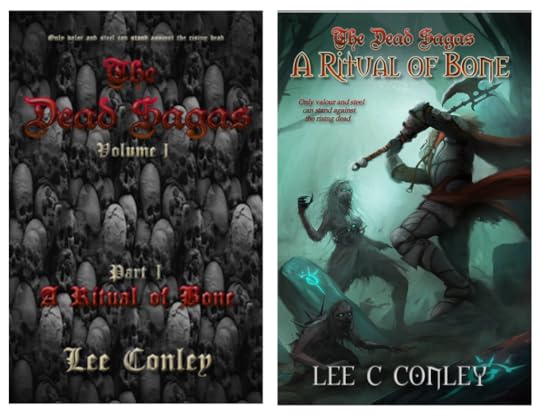
What about self-publishing appeals to you? Why did you choose this particular path to publication?

My very first book was a guitar theory textbook, as mentioned above I had zero industry experience and had no idea how to go about getting a book published. There was a steep learning curve with that book, but it gave me the experience to self-publish my fiction. That first fiction book was nowhere near as good as it should have been but again there was a steep learning curve. By the time I knew what was what, I already found myself in the self pub camp and happy to be there. I have complete control over who edits my books and what cover art I have. I do a lot of my design and formatting myself, my own maps too, and of course all my own promotion, which is a lot of work but, now I have my game down, it has given me a broad skillset in publishing on top of the writing itself. There are other reasons I am remaining self pub, for example, my series will never get dropped and be left unfinished. I have a certain vision for The Dead Sagas and I will make sure it ends up complete and the way I want it. I won’t rule out a hybrid approach in the future, but for now I am proudly self published through my own imprint Wolves of Valour Publications.
Let’s talk about diversity. How do you incorporate realistic diversity into your books? And why is it important to you?
In The Dead Sagas one of the issues I felt I wanted to explore was that of racial prejudice. I took a black character and put him in a world full of ignorant white people that have never encountered his like before. This was a risky move to be honest as the that story arc doesn’t come into its own until book two, but after much thought I decided to go with it. With this particular character there is fear and ignorance, there is othering, but I also wanted to show, the kindness that I believe dwells in every human soul, all shown in the difference between the way different characters interact with him. I wanted to explore how people assume that because someone doesn’t speak their language that they must be un-intelligent, and in the second book I explore this, and also the character’s frankly incredible intelligence shines through, plus he’s bad ass too, both quick of mind and of the blade, hopefully becoming a hero of the series. I can’t wait for you guys to check him out.
Weapons are cool. They often require research. Tell me about a cool weapon you’ve researched and used in your writing.
I do a lot of weapons research, in a weird way I am actually very knowledgeable on certain weapons and combat mechanics as I am a historical martial arts instructor. I specialize in 15th-16th Century longsword of various styles, but also train and teach in 18th Century military sabre, backsword, and tomahawk & bowie knife. It’s very good fun, keeps me fit and is a fantastic release.

How do your non-writerly hobbies influence your writing?
As just mentioned I am a historical martial arts instructor and that often spills into my writing. My weapons training does give me an in depth insight into writing fight scenes, I like to keep things realistic but I try not to let it become a combat manual, as that doesn’t make for good writing, but my weapons training certainly helps me visualize a combat sequence so I can select the most interesting points to highlight and write about, which hopefully makes for an exciting fight scene.
Time to talk about BOOKS

Tell me about the most recent book you’ve read.
I am currently reading the Merkabah Rider series by Edward M Erdelac. It’s about a Jewish gunslinger that fights demons. It’s super cool! He has special glasses that let him see into the spirit world so he can see demons and spirits in their true form. He also has a volcanic pistol inscribed with holy symbols to fight them. There’s a whole bunch of other cool stuff too, and he generally battles all manner of awesome biblical creatures. It’s very much a horror in a wyrd west setting and there’s a definite Lovecratian Mythos thing going on too on top of the biblical stuff. I’m on book four, the final book, now and it’s a series I have very much enjoyed and I’d definitely recommend it.
What book(s) or authors have influenced you, and why?
I was hugely influenced by two authors in particular, one being Steven Erikson for his pure epic scope of storytelling from multiple points of view. His books are amazing and the world he created is just mind blowing in its sheer scope. The second author is Bernard Cornwell, who I have been a fan of since childhood. The way he can take historical events and breathe so much life and action into them is something I have always tried to emulate. On the horror side of thing I love Stephen King (doesn’t everyone though) and H.P. Lovecraft (despite some very troubling views the man held), both masters of their craft.

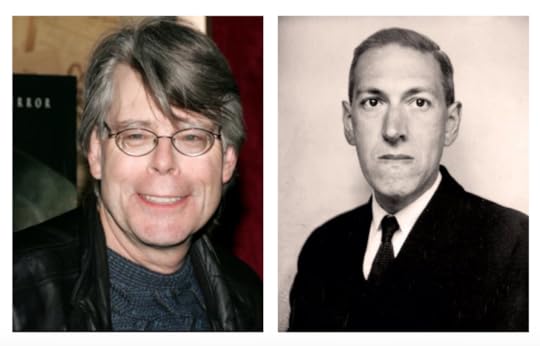
Let’s throw some light on diversity. What are some books you love that feature diverse characters, diverse authors, etc.
Well I mentioned the Merkabah Rider series I am reading right now, one of the things I have enjoyed is the diversity and the Jewish point of view on an old west setting. It tackles the issue of othering and religious harassment very well from a Jewish perspective. In a wild west setting full of white back-water folk, The Rider, with his Hasidic outfit, orthodox curled hair, and general ‘not the same as them’ look, does certainly cause some tension and it is awesome to read about him overcoming it with complete dignity and is also often the last man standing alive at the end. There is also an Ethiopian main character which faces racial prejudice too, again, a very important subject I think we need to see tackled today more than ever. I am also a big fan of several women authors, it’s a great time for women authors right now, never before has there been such a huge selection of incredible books written by incredible women. Anna Spark Smith has some of the most hauntingly beautiful prose I have ever read, Anna Stephens is ace, Alicia Wanstall-Burke is amazing, there are just so many right now and it makes me happy to see them winning top awards and I hope this age of diversity continues so I can discover more great authors.
Hobbies & All Things Weird
When you aren’t writing, what can you typically be found doing?
Playing guitar, recording music, sword fighting, gaming and painting minatures would be my go to hobbies. I spend a lot of time hanging out with my family, I have two young girls that keep me busy. I play guitar professionally as my day job and work for a recording studio too, so I play a lot both for work and pleasure. Love my heavy metal! I also spend a lot of time recording progressive melodic comedy metal in the guise of a blood thirst goat. I already mentioned my historical martial arts earlier, which is a big part of my life, but when I’m not swinging swords around I like to game both digitally and tabletop and with that comes the painting of miniatures also.

Best comic book character ever. Why?
I’m gonna go straight in with Conan, Dark Horse’s Conan is my all-time favorite. I’m also quite partial to Spawn (Todd Mcfarland is god) and Judge Dredd too. Never been that big on the whole Marvel/DC thing, as I always though Vertigo, Dark Horse and 2000 AD smashed their bigger rivals out of the park, but that’s just one man’s opinion. And don’t get me wrong I do enjoy Marvel and DC, just not as much as the others I mentioned, love the recent Marvel films though. But let’s bring it back, Conan, just like in the R.E. Howard books is my favorite, he’s just such an amazingly fun pulp character and translates really well into badass in comic form, plus with the right artist and writers *cough cough* Kurt Busiek *cough* What!?! So the best!
We all have family recipes. Share one of your favorite ones.
Family recipes? I do have an excellent pizza I regularly make. It’s rectangle so it fits in an oven tray, but I have done it circular before, but having corners and a deep dish makes this one the best. So, pizza dough as the base, tomato puree next, then baked beans (stay with me) evenly spread and covering it all, then chopped pre-cooked Lincolnshire or Cumberland sausage, then mozzarella torn up and scattered over all of it, and finally grated strong mature cheddar cheese. Bake at 200 Celsius for 20-25 mins and boom! Super tasty square pizza, pie, type thing—its glorious! But remember, I invented it, it’s a Lee Pizza!
What’s your favorite holiday and why?
Easy, Halloween, or Samhain, as we call it in my house. We’re weird pagan types and to us it’s a holiday that rivals Yule, we have a huge dinner and a party, we join in with contempory style of celebration alongside the more pagan style rituals and celebrations. Love it!
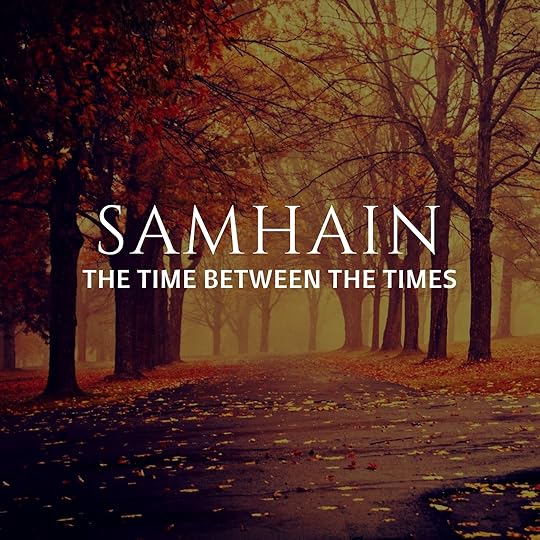
Any final thoughts?
Thank you to Sarah for hosting and interviewing me, and thank you to anyone reading this also, I hope you found my ramblings interesting. Please do check out The Dead Sagas and if you do, I would love to hear from you. The first book in the series, A Ritual of Bone, is out now, and second book, A Ritual of Flesh, is available from October 10th.

Thanks for stopping by, Lee Conley! Please remember to check out his website, and buy his books.
October 9, 2020
Indie Author Interview | Jesse Teller
This is part of a new series of interviews featuring indie authors. These interviews will drop once or twice a week. If you’d like to be part of this series, please contact me at Sarah (at) bookwormblues (dot) net. Please support the authors by clicking on the affiliate links in the interview, spread the word, and, of course, buy their books.
We’re all in this together, you know?

About the Author
Jesse Teller fell in love with fantasy when he was five years old and played his first game of Dungeons & Dragons. The game gave him the ability to create stories and characters from a young age. He started consuming fantasy in every form and, by nine, was obsessed with the genre. As a young adult, he knew he wanted to make his life about fantasy. From exploring the relationship between man and woman, to understanding the qualities of a leader or a tyrant, Jesse Teller uses his stories and settings to study real-world themes and issues.
Links
Facebook Author Page
Facebook profile
Instagram
Goodreads
Twitter
Website
Newsletter
Amazon
First off, tell me about your book(s).
I bet you hear this all the time. I would imagine not many people describe their book and say something like, I’m pretty bored with this one. I would imagine that often times you hear, I’m really excited about this book. Well, I’m really excited about this book. Plight of Madness is the third book of The Madness Wars series. There’s still one book coming out to finish out the series. And not many people get as jazzed about one of the middle volumes as I am about this book. All of my work is interconnected, so if you read a series of mine, you get a full story and you can stop there. But if you read another series, you’re gonna find characters from the first one, and events that happen in the first one. You’re gonna see that one of the side stories in one series finishes in a different series. Origin stories for characters you already know will be shown in a book that just came out. My writing has this twisting, turning narrative, criss-crossing storylines, this sort of thing. It’s exactly what you would expect from a madman.
So, I guess the thing I’m so excited about with this book, is that in the book Hemlock, which came out April 15, 2018, you see the tattered remains of a romance. Plight is the book that romance starts in. In Crown, the third book of The Manhunters series, you see a fully formed and functioning wizard coven. And in Plight, you get to see its origins. Storylines are continued from the short story collection Legends of Perilisc. A character that’s easily overlooked in Hemlock and Crown is shown in Plight, and you see the real reason why you should have been excited about her the whole time.
It’s as if you’ve been working a puzzle, a large puzzle, and one section of the puzzle is very incomplete until you slide this piece in. Then so much of every other book you’ve read by Jesse Teller slides into place. But at the same time, in order to enjoy Plight of Madness, the only books you have to have read, are Onslaught of Madness and Wrath of Madness. However, if you have read them all, if you have read the entire Jesse Teller collection, Plight of Madness is one payoff after the next.
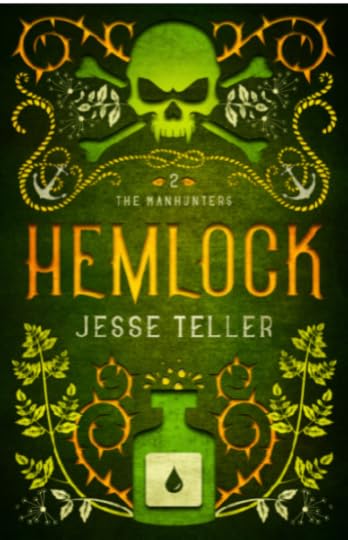
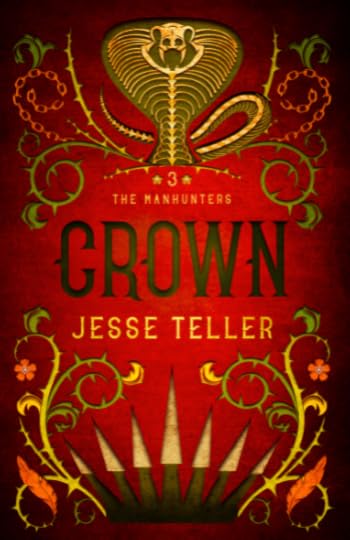
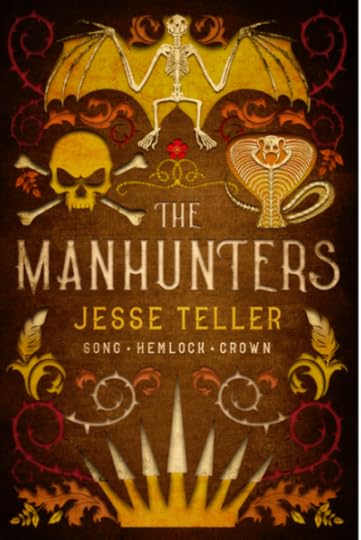
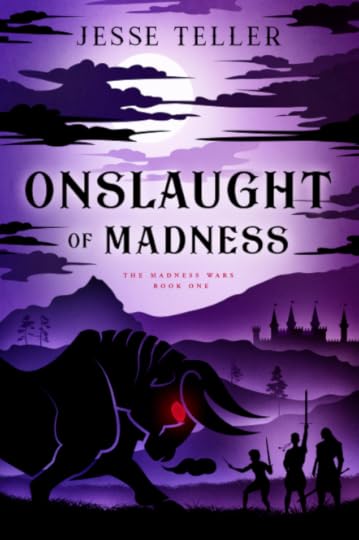
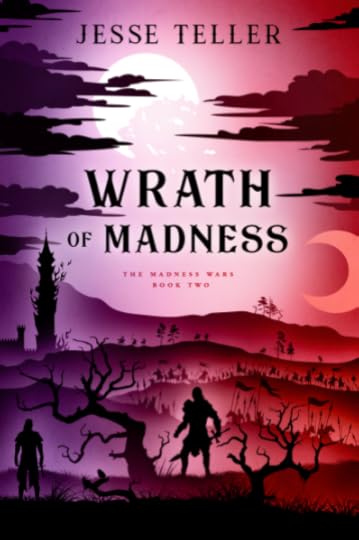

What makes you and your books unique? Shine for me, you diamond.
My books were written by a man who’s clinically insane. Eighty percent of my brain spends its time connecting storylines and threads from all different directions all over my world. Waking, sleeping, eating, showering, with every activity I commit myself to, at least forty percent of my brain is working on fantasy. It never stops for me. I have to do this job as a coping mechanism for the reality I live in. If I wasn’t a fantasy writer, I’d be an inmate with a straight jacket. I have a tenuous hold on my life. I’m balancing on a beam, and that beam is my world. Without it there is only howling and screaming.
Let’s celebrate. What’s one of the best things that’s happened to you as an author? Don’t be shy.
There are a few readers who have read everything I’ve written. A few people who have looked at all of it, and they see what I’m doing. They see the beauty of it and the depths of its insanity. And every single reader that has read everything I’ve put out has said to me that they are a devoted fan for life. Everybody who’s read it all cannot look away. So one series and one book may bring me a fan, but all of the books, if you read all of the books, you become obsessed. And every time you reread them all, you see things you missed.
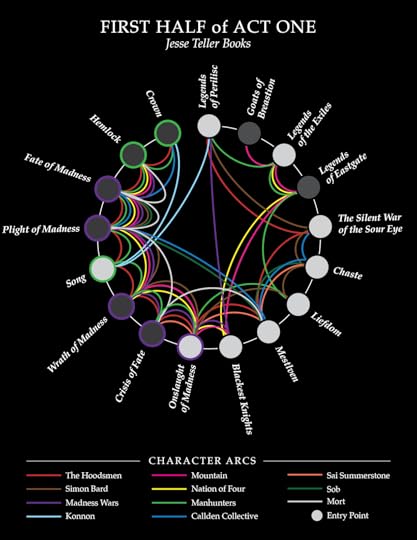
What are you working on now/any future projects you want to talk about?
I’ll give you the short. I’ve written 34 books, all in the same world. All interconnected. The plan is 68. They are organized into three acts. Act One is 28 books. It creates the world, shows the great major powers. Act Two is 31 books and it shows the absolute destruction of all law and order, and the world itself. Leaving what used to be beautiful and powerful into a post-apocalyptic reality. The last nine books decide the fate of heaven, the world of man, and hell. The thing that’s so taxing on my mind right now is that as I am releasing the first act, and the world around me and my readers are watching me build the world, when I go to my desk at night, I’m destroying it. So as we talk in this interview about the interesting things being put together and the interesting people coming forward, I am at night busy telling the story of the fall of all of it.
Let’s talk CRAFT
What is one thing that you’ve learned about yourself as a writer?
I am mentally disabled, suffer from bipolar, dyslexia, PTSD, and DID (multiple personality disorder). Writing is about the only job my mind is capable of. I can’t hold a 9-5. I can’t be in public for long periods of time. I can’t be counted on to hold conversations, to get out of bed. Sanity is a slipping thing for me, like stacking raw meat. I had no other path. Part of my disorder is weekly, daily, hourly hallucinations. As I’m sitting here, my Rottweiler is not covered in fur, but in the blooms of flowers of all different colors. When she gets thirsty, the flowers close. When she drinks, they bloom. My other dog, my mix breed, is made out of solid ice, and he’s steaming.
See, I am not sane. My wife knows it. My kids know it. One day I’m perfectly normal, the next day I can’t walk because there is no floor, just a solid pit of black beneath me. And I have to hold onto my wife’s shoulder as she walks me from the dinner table to the bathroom. The world around me is filled with insanity, and I’m a certified lunatic. Writing is the only course for me because my hallucinations can be used, can be harnessed, to create a fanciful world. The reader reads my world and is transported to a place of darkness, villainy, despair and hope. My reader experiences all of these things, and then they close the book and go to bed. They close the book and cook dinner for their family. The reader visits my world. But I live there. I’m trapped there. Writing is the only course for me because it’s the only way to communicate to my loved ones how I truly think and feel.
What about self-publishing appeals to you? Why did you choose this particular path to publication?
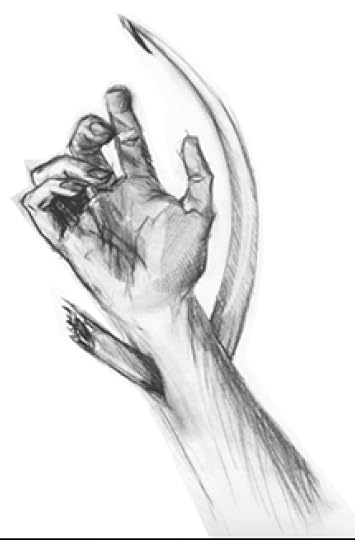
For me, self-publishing was all about believing in my book. I did seven drafts of my debut novel Liefdom, spent $3000 getting it edited, spent $1800 at a writers’ workshop to learn how to hone it, shape it, hammer it into the story I wanted to tell. I had over eight beta readers. The creation of it spanned over five years. I had all the little things. I was proud of the character, proud of the setting, enjoyed conversations I’d had with others about the book. My wife had done a drawing. She’s a classically trained artist and she had done a drawing of the main character’s hand and weapon. I love the inspiration, the concept for the book had been inspired by an odd movie night where I watched A Midsummer Night’s Dream and Die Hard 3. And in my head, a blending of characters was made into one.
I thought the world was cool. There were a lot of scenes that stood out to me. All the little things that make you love your book. I thought the book mattered, the subject mattered, really mattered. So when I was done with Liefdom, I knew it was a special book. My wife knew it was a special book. But it wasn’t only that. By the time I was ready to self-publish, I had used Liefdom as a launch pad to write 17 other books in secret. This book was a pivotal foundation stone for my entire career.
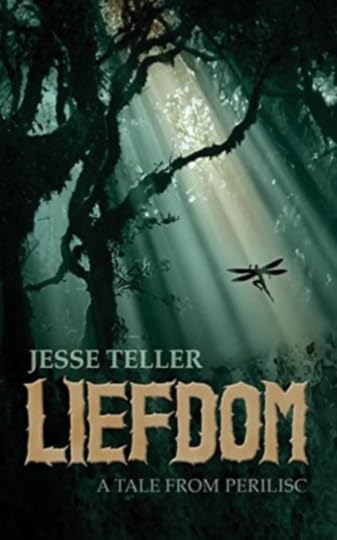
I sent it out in cold submissions and it was brutalized. Nobody saw any potential in it. Agent after agent rejected it. And when the book had been rejected 119 times, it had two fates. Fate #1, I box it up and put it away and maybe someday down the line it sees the light of day. And maybe it doesn’t. Or, I self-publish the book. I had faith in this book. There’s a scene in the movie Walk the Line about Johnny Cash, when he goes in front of a music producer and sings a gospel. If you’ve seen the movie, I’m sure you remember the scene. The producer’s like, I don’t buy it, interrupts him in the middle of Johnny singing about his God. He says, “I don’t buy it.” Johnny gets froggy. But the producer says, “If you were laying in a gutter, and you were dying and you could sing one song before you died, what song would it be?” And Johnny sang “Folsom Prison Blues.” It’s a miracle of a song, launched his entire career. Well if I was laying in a gutter, and I only had one story to tell, it would be Liefdom. So I went with Fate #2, and I put it out and started getting reviews. People were blown away. Liefdom is a success story. It’s the book that refused to die, a book my wife and I believed in, and when you believe in something, you can’t walk away.
Tell me about some of your personal writing pitfalls and what you do to avoid them.
I’m a terrible typist. I never learned how to type in high school or college. I’m constantly looking down at my hands as I’m looking up at the screen. And at first, as I was transforming myself from a storyteller into a novelist, I had to type really slow. It would take me seven hours to write 2,000 words. And I’m talking about seven hours of solid typing. I simply had no idea where the letters were on my keyboard. But as I got more experienced, I started typing faster, my mind started creating story faster. The conversations were happening in my mind quicker than they had before. Passionate arguments between characters would hit the air in real time. And I’d have to fight to keep up with what they were saying, the speed at which they were saying it. I was frustrated and angry at the fact that I couldn’t keep up with my mind as it created. I began to pound on the keys as I poured out my frustration. And the typing got sloppier and sloppier.
Autocorrect is a beautiful thing but certain flaws started to develop. My fingers got used to making certain mistakes. My fingers would fly on a word they had not mastered typing yet and I would move on. My rough drafts are barely legible. And I have to go back and try to make sense of it. My wife reads back everything to me that I’ve written the night before, and she has learned to read a form of English mixed with the howling of a madman. She reads it flawlessly. After having read 5 million words, she knows that language. So her eyes pass over the bad habits of my whirling fingers. And every time the word “and” is supposed to be “and” but comes out “adn” she glides right past it.
My pitfall as a writer is the way I type. From the violent pounding that leaves my fingers and hands aching, to the bad habits of fingers that are trying to create their own language. But this is what editors are for. They catch some of my mistakes, and before we send them the bloody drafts, my wife translates them into English.
What research tips or tricks would you give another writer?
I don’t know if this is an actual research tip. I don’t know how realistic this is for a writer to embark upon. But before I was forced to leave college, I was a history major and a literature major. I was one of those guys that was so excited about his double major that instead of doing any of my gen ed work, I took all the classes in all the things I was interested in right away. No health and math for me. Just Latin American history, military history, Western Civilization history, African American literature, literature and playwrights, all this kind of stuff. As you can imagine, creative writing. I majored in literature and history because I knew that one day I would be writing fantasy.
Hours and hours and hours of reading, note taking, test taking, one class after the next, one semester after the next. And though I never did get those math requirements, and I never did master the French language, I know the history of the Jewish people from Abraham to the liberation of the death camps. I know the inbreeding of the royal family that resulted in King Carlos the Bewitched. I know William the Conqueror. I know the ranks of warriors in the Aztec societies. Never did take that health class they make you take, where you find out your percentage of body fat, but I do know all the great Greek plays.
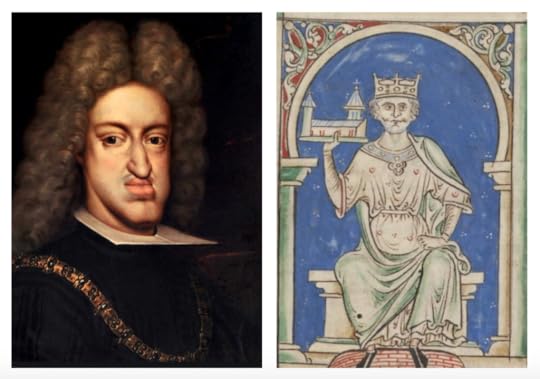
I guess what I’m saying is that educating yourself on the basics of all history and literature can make you what you need to be as a writer. Focusing on the way the world organized itself and the way that organization played out, meticulously studying how a poem was written and how a play is displayed on a stage, can bring you closer to your work and enrich the things you’re trying to write in ways that sometimes a Google search just can’t do.
When does research matter, and how do you incorporate it into your books?
In my books, there’s so much fantasy, so many strange and odd things going on, that I don’t find myself researching very often. My cultures, my governments, they’re all so foreign that I don’t really want to look up historical figures and governments and cities, because I don’t want them tainting my world. However, there are certain things you have to know if you’re going to do the job.
Best example is you have to know how a sword is forged, how yeast bread is made, how unleavened bread is made, how crops are tilled, and the oddest one for me was you have to learn how a quarry operates. One of my books takes place in a quarry town. I needed to know what the tools look like, what the rigging look like, I needed to know what all of that was like.
So I did some research, I looked for a book on quarries and how they were run, the mechanics of actually working in a quarry. And I wanted a book to hold in my hand. So I got on Amazon and I ordered a book. I found the perfect one and I paid almost $20 for it. When it got to my house, it was a pamphlet that was about 25 pages long. After I stomped around, yelled, threw it across the room a few times, I remember I actually bent over while it was on the ground and looked at it. Then I opened my mouth and a hallucination I had showed me actually breathing fire on the book. It was very cool. Tantrum spent, I read the book, as you can imagine it didn’t take much time. There was a shocking amount of information in my 30 page pamphlet, 25 page, I don’t know, whatever I said. I don’t know. It happened years ago. I learned what I needed to know, wrote the book, turned out great.
Time to talk about BOOKS
What’s your favorite book as a child?

When I was a child I was dealing with a house filled with hate, a family at war, a riotous mind, hallucinations, and memories of blistering child abuse. I had learned by the age of eight how to navigate some of that. And that’s when I found the book The Count of Monte Cristo. The alternate personality in my mind that was giving me hallucinations created a cell for me to live in, and a mentor who lived in the cell next to mine. Just like in The Count of Monte Cristo, that mentor taught me how to navigate my life.
He was my teacher, and he brought me some modicum of sanity. He taught me how to talk to girls, how to understand cultures that were not my own, how to fight, how to love. He taught me how to talk to my parents. He taught me how to deal with my abuser. This mentor trapped in the cell next to mine became the only cord of sanity in my life. When I asked him his name, he wouldn’t give it. And when I reached a certain age, he disappeared. And every year, I read The Count of Monte Cristo, because many people think that book is about revenge. But to me, that book was not about revenge. To me, that book was about isolation, in a cell, and a teacher who saved my life, my sanity, and put me on the path to manhood.
What protagonist/antagonist in a book do you relate to the most, and why?

There’s a book by Richard Nell. If this name is new to you, write it down and never forget it. He’s written a trilogy called the Ash and Sand series. He’s pretty well known for it. It’s a masterpiece. He’s written other work that I never hear anybody talking about, but everybody should shout about this all the time. There’s a novella called “Rebellion of the Black Militia.” The main character is being trained by a master soldier on the fundamentals of fighting in an army. He’s also mentored by this master soldier. His days are filled with drills and exhaustion. His body hurts all the time. He needs more water than he’s getting. He needs more sleep than he’s getting. And he has this leader looking down on him, guiding him, training him.
This master trainer has a goal in mind for this character that he’s not betrayed yet. He’s taken this character on as a project, and he is slowly making him into what he needs to be. The character that’s being trained reminds me of me. Slowly being made into a power to be reckoned with. The trainer is the self-published fantasy industry, because it’s brutal and ruthless, and it works you constantly. And it makes you beg, and it gives you praise, and there’s challenges constantly. And at the end, there’s a great battle to fight. At the end, you’ve been crafted into a professional writer, a successful writer. One day my training will come to an end. One day, the fantasy publishing industry will have slowly made me into a successful author.
Hobbies & All Things Weird
When you aren’t writing, what can you typically be found doing?
Well the easy answer is sleeping, right? Writers need a lot of sleep. Madmen need a lot of sleep. So the easy answer is sleeping. I’ve made a hobby out of it. It also answers the question of what I like to do that I’m not good at. But if I’m being serious, my favorite hobby is cooking. I like to find new recipes hidden away in my mind and then we name them fun names around the kitchen table.
I’ve got Rock n Roll Rice. For every cup of rice you have, you add a can of nacho cheese sauce. Dice up some carrots and a sweet onion, and bake them for about 25 minutes. You need some bacon. When you’re cooking the rice, I use Minute Rice. Don’t make fun of me. When the rice is in the water, I have infused the water with about 2 teaspoons of rosemary, and that flavor will soak into the rice. Mix all that together. It’s a big hit.
I made this one meal, you take a can of navy beans, kidney beans, black beans, chili beans, pork n beans, how many beans is that? What am I missing? Oh yeah, I forgot pinto beans. Slice smoked sausage into coins. Dice some ham and a white onion. Mix all that up in a big cast iron pot. Bring to boil, let simmer for two and a half hours, and you have Stonefist Stew. Now Stonefist is a tribe in my work. This is a stew that is only cooked on the battlefield and on long hunting trips. It’s a recipe that’s been handed down for 2,000 years, father to son, uncle to nephew. Not until the end of that 2,000 years had a woman ever tasted this stew. My wife made me name it Stonefist Stew because she refused to let me call it by the name the Stonefist men have been calling it for 2,000 years. My sons were on board for the authentic name, but my wife refused to eat anything called Fart Stew.
Sarah’s note: I’m totally on board with refusing to eat anything named “fart stew.”
I am a firm believer that we all have to be a little weird to do what we do. What makes you delightfully wacky?
Delightfully wacky, well, the insanity is a thing. We have a title we like to throw around the house where the kids and the wife call me the Lunatic of Fantasy. If they can call Joe Abercrombie Lord Grimdark, and Anna Smith Spark the Queen of Grimdark, then I think I can be the Lunatic of Fantasy. So there’s all that madness that you can count as wacky. But I think my obsession with knives makes me pretty weird. I’ve got one clipped to the inside of each pocket, a foot-long blade by the bed, each of my sons have at least two blades, and every now and then I’ll just go buy another blade.
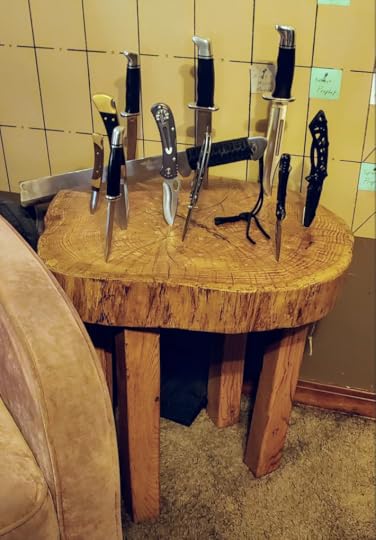
Pocket knives have been a part of my life since I was five or six. I’ve always had one, either for personal defense or just for comfort reasons. I grew up in the inner city of Milwaukee, in gangland neighborhoods. Everybody had a knife. The gangsters in my neighborhood had Bowie knives hanging off their belts. You saw it everywhere you went. Well my knife obsession followed me outside of those streets, and has followed me to my office.
If you watch a Netflix special called The Standups, you’re gonna find a genius comedian called Kyle Kinane. I was watching his set when he started talking about his knife table. The civilized of you will think this is a table on which to display your knives. But those of you with a barbarous lean will know this is a table you stab your knives into. I watched the special with my wife, and just let it go by. But about two months later, one of my alternate personalities came out and said to her what she had been waiting for for two months, “We gotta get a knife table for my office.” So if you go into my office, you’ll see a little table by the reading chair where about nine knives have been stabbed into the table. There’s even a machete that was slashed through the air in true barbaric form and is now embedded into the edge of the table. It’s really quite something to see.
If you were an animal, what would you be and why?
I wrote this series called The Treefrog Trilogy. It hasn’t been released yet. I’ll start releasing that series when The Madness Wars is done, so expect the first book in that series on October 5, 2021. Anyway, it’s got a group in it called The Ramblers. The Ramblers work with a wizard who has the ability to enlarge creatures. All the Ramblers are cavalry men and women, and they all ride different steeds. We’ve got a guy who rides a dead horse. Don’t picture a zombie. Picture ghost. But his armor and saddle ride his spectral form. So the rider will straddle a saddle and a pile of armor at his feet, and out of the ground will rise a ghostly horse. All the armor will fly up, and the saddle will fly up, and off he’ll ride.
The animal I’d choose to be, though, is not a dead horse. There’s a character who rides a massive fire ant. A character that rides a lion the size of an elephant. We have a hyena. And we have a hornet. At one point in the trilogy, one of these mounts dies and is replaced by a simple dog. It’s at this point I realized just how awesome a canine is. Fast, loyal, powerful, friendly, with powerful senses, instincts, I’m gonna mention loyalty again. There’s a lot of animals in the animal kingdom, but if I had my choice of any animal I could be, my answer would be a dog every time. You pick the breed. Just don’t pick one of those little white ones.
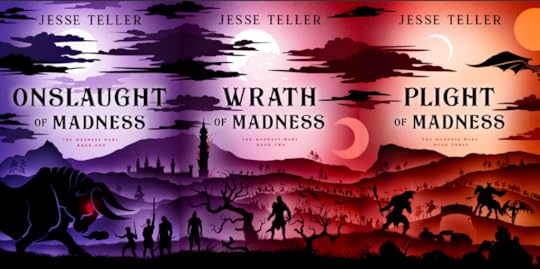
What’s your favorite swear word and why?

My favorite swear word is badass. I see badasses everywhere I go. Just about everybody I’ve ever met is a badass in some way. See, I’m really big on praise. I like to make people feel good about who they are and what they do. And in doing so, I use the word badass quite a bit. One of the strongest, most powerful women I ever knew was my wife’s grandma. She was deep in her 70s, a sweet Catholic woman, that I would often look at and call a badass. She’s passed now, but I can still see the smile on her face when I said it. I’ve told my sons they are badasses so often that they don’t even blink anymore. Everybody you have ever met, and everybody you will ever meet, is a badass in some way and at something. I think you should tell them next time you see them. The more you tell people they are a badass, the more they’ll ask you why. And the more they ask you why, the more you’ll get to pick out a quality they have that is in some way impressive. So if every day you tell one to five people they’re a badass, you’re gonna find yourself getting better and better at seeing the greatness around you.
Any final thoughts?
I want to thank you for hosting this interview. It has given me the chance to get more personal than I ever have been anywhere else. I said things in this interview, admitted things about myself, that I have never told anybody outside of a chosen few in my personal life. This interview is me at my most revealed. So thank you for that.
Thanks for stopping by, Jesse teller! Please remember to check out his website, and buy his books.



